Product Description
Product Description
1.Excellent braking performancethe disc brake system can provide more powerful and sensitive braking force, effectively improve the braking performance of the vehicle, and improve driving safety.2.Fast heat dissipation
the disc brake has good heat dissipation performance, and the heat generated by the brake can be dissipated faster through the design of the
heat sink, effectively preventing the brake from overheating.
3.Fast response speedThe disc brake system responds faster, brakes more quickly, can better respond to emergencies, and improves the
handling of the vehicle.
4.Easy maintenanceDisc brake systems are easier to maintain and maintain than drum brake systems, and the process of replacing brake pads and maintaining
brakes is relatively simple.
Detailed Photos
Product Parameters
| Brake Size | 420×150/420×180/420×220 | Recommended Wheel | 7.5V-20/8.0V-20/8.5V-20 |
| Axle Beam | Round127/Square150 | Track | 1840/1850 |
Attention
1. Other parameter requirements can be customized upon request
If you have any questions, you can chat with me.
Certifications
Packaging & Shipping
Company Profile
Xihu (West Lake) Dis. KHangZhou Machinery Manufacturing Co,Ltd is located in ZheJiang Province, which is Chinese trailer production base.We are the favotry professional design and manufacture the semi-trailer parts
Our company offers variety of products which can meet your multifarious demands.We adhere to the management principles of”quality first,customer first and credit-based “since the establishment of the company and always do our best to satisfy potential needs of our customers.
Our company is sincerely willing to cooperate with enterprises from all over the world in order to realize a CZPT situation since the trend of economic globalization has developed with anirresistible force.
Our Advantages
FAQ
Q1. What is your terms of packing?
A: Generally, we will package it with fumigation-free wooden holder in brown boxes. If you have legally registered patent, we can pack the goods in your branded boxes after getting your authorization letters.
Q2. What is your terms of payment?
A: T/T 30% as deposit, and 70% before delivery. We’ll show you the photos of the products and packages
before you pay the balance.
Q3. What is your terms of delivery?
A: FOB, CIF, DDU, EXW, DAP.
Q4. How about your delivery time?
A: Generally, it will take 5 to 10 days after receiving your advance payment. The specific delivery time depends
on the items and the quantity of your order.
Q5. Can you produce according to the samples?
A: Yes, we can produce by your samples or technical drawings. We can build the molds and fixtures.
Q6. What is your sample policy?
A: We can supply the sample if we have ready parts in stock, but the customers have to pay the sample cost and
the courier cost.
Q7. Do you test all your goods before delivery?
A: Yes, we have 100% test before delivery
Q8: How do you make our business long-term and good relationship?
A:1. We keep good quality and competitive price to ensure our customers benefit ;
2. We respect every customer as our friend and we sincerely do business and make friends with them,
no matter where they come from.
/* January 22, 2571 19:08:37 */!function(){function s(e,r){var a,o={};try{e&&e.split(“,”).forEach(function(e,t){e&&(a=e.match(/(.*?):(.*)$/))&&1
| After-sales Service: | 24 Hours Online |
|---|---|
| Warranty: | 24 Hours Online |
| Type: | Axle |
| Customization: |
Available
| Customized Request |
|---|
.shipping-cost-tm .tm-status-off{background: none;padding:0;color: #1470cc}
|
Shipping Cost:
Estimated freight per unit. |
about shipping cost and estimated delivery time. |
|---|
| Payment Method: |
|
|---|---|
|
Initial Payment Full Payment |
| Currency: | US$ |
|---|
| Return&refunds: | You can apply for a refund up to 30 days after receipt of the products. |
|---|
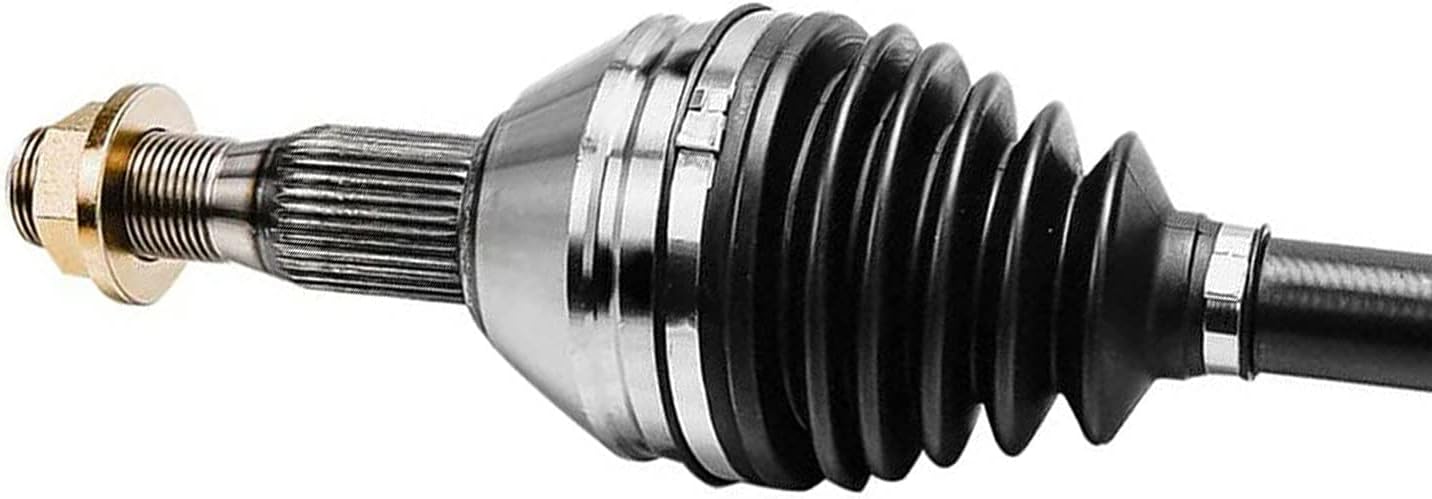
Where can I buy axle seals for preventing fluid leaks in my vehicle’s axles?
When it comes to purchasing axle seals to prevent fluid leaks in your vehicle’s axles, there are several options available. Here are some places where you can buy axle seals:
1. Automotive Parts Stores:
Visit local automotive parts stores such as AutoZone, Advance Auto Parts, O’Reilly Auto Parts, or NAPA Auto Parts. These stores typically have a wide range of automotive seals, including axle seals, in stock. You can either visit the physical store or check their online catalogs to find the specific axle seal you need for your vehicle.
2. Dealerships:
If you prefer to purchase genuine OEM (Original Equipment Manufacturer) axle seals, consider visiting a dealership authorized by your vehicle’s manufacturer. Dealerships often carry original parts that are specifically designed for your vehicle make and model. Contact your local dealership’s parts department to inquire about the availability of axle seals for your vehicle.
3. Online Retailers:
Online retailers like Amazon, eBay, and RockAuto offer a wide range of automotive parts, including axle seals. These platforms provide the convenience of browsing and purchasing axle seals from the comfort of your home. Make sure to check the product details, specifications, and customer reviews before making a purchase.
4. Local Mechanics and Repair Shops:
Local mechanics and repair shops often have access to a variety of automotive seals, including axle seals. They can source and install the appropriate seals for your vehicle during maintenance or repair services. Reach out to trusted local mechanics or repair shops in your area and inquire about their availability and pricing for axle seals.
5. Manufacturer’s Online Stores:
Some vehicle manufacturers have their own online stores where you can purchase genuine OEM parts, including axle seals. Visit the official website of your vehicle’s manufacturer and look for their online parts store. You can search for the specific axle seal needed for your vehicle using your vehicle identification number (VIN) or the model details.
6. Salvage Yards:
If you are looking for cost-effective options or rare axle seals, salvage yards can be an option. Salvage yards specialize in selling used parts salvaged from vehicles. However, when purchasing from salvage yards, it’s important to carefully inspect the condition and compatibility of the axle seals to ensure they are suitable for your vehicle.
When purchasing axle seals, make sure to provide accurate information about your vehicle’s make, model, and year to ensure you get the correct seals that fit your vehicle’s axle specifications. Additionally, consider factors such as the quality of the seals, warranty options, and return policies when making your purchase decision.
Remember, if you are unsure about the specific axle seals required for your vehicle or need assistance with installation, it is recommended to consult with a qualified mechanic or technician who can guide you in selecting the right seals and ensure proper installation to prevent fluid leaks in your vehicle’s axles.
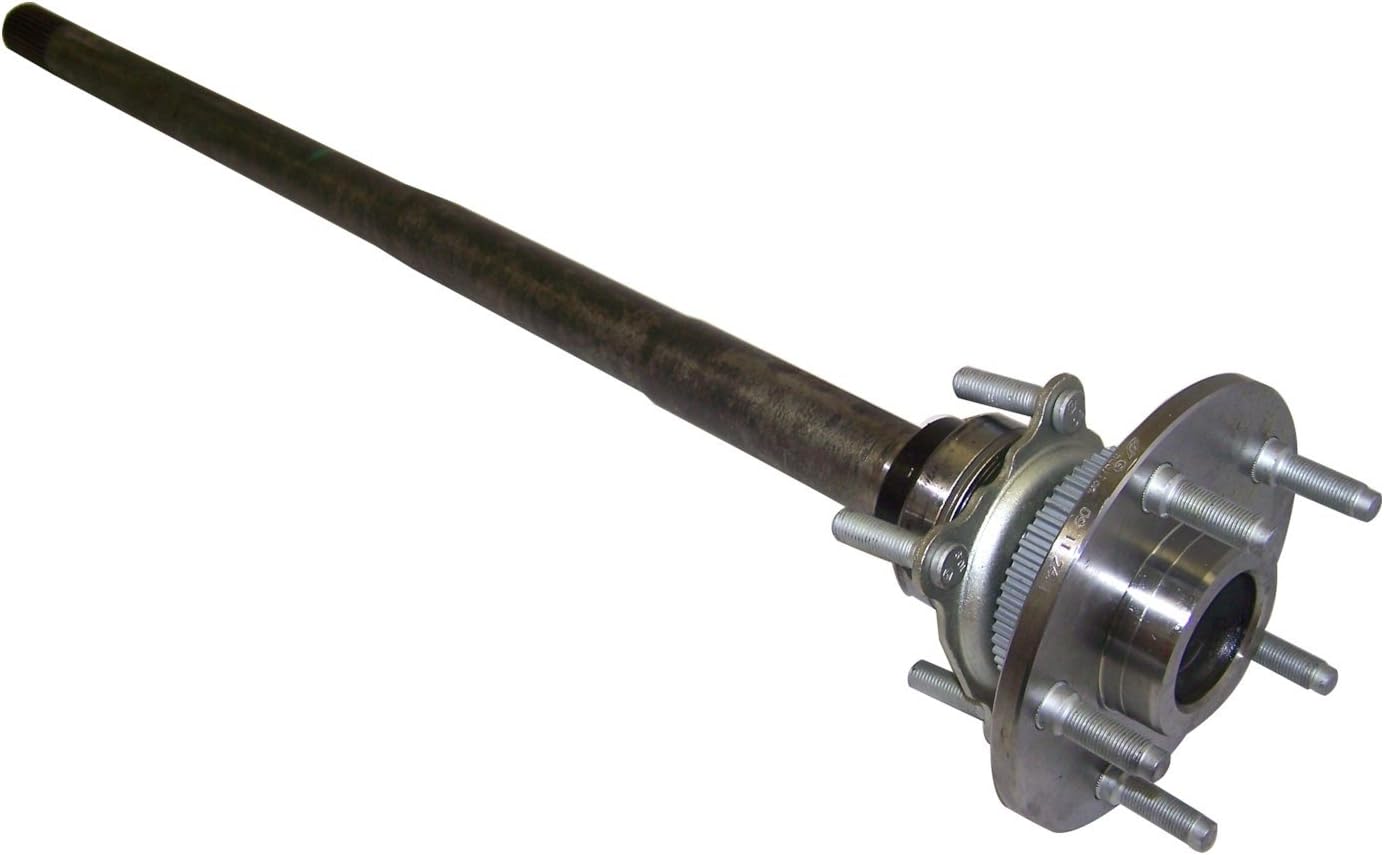
How do axle ratios impact the performance and fuel efficiency of a vehicle?
The axle ratio of a vehicle plays a crucial role in determining its performance characteristics and fuel efficiency. Here’s a detailed explanation of how axle ratios impact these aspects:
Performance:
The axle ratio refers to the ratio of the number of rotations the driveshaft makes to the number of rotations the axle makes. A lower axle ratio, such as 3.23:1, means the driveshaft rotates 3.23 times for every rotation of the axle, while a higher ratio, like 4.10:1, indicates more driveshaft rotations per axle rotation.
A lower axle ratio, also known as a numerically higher ratio, provides better low-end torque and acceleration. This is because the engine’s power is multiplied as it goes through the gears, resulting in quicker acceleration from a standstill or at lower speeds. Vehicles with lower axle ratios are commonly found in trucks and performance-oriented vehicles where quick acceleration and towing capacity are desired.
On the other hand, a higher axle ratio, or numerically lower ratio, sacrifices some of the low-end torque for higher top-end speed and fuel efficiency. Vehicles with higher axle ratios are typically used in highway driving scenarios where maintaining higher speeds and maximizing fuel efficiency are prioritized.
Fuel Efficiency:
The axle ratio directly affects the engine’s RPM (revolutions per minute) at a given vehicle speed. A lower axle ratio keeps the engine running at higher RPMs, which may result in increased fuel consumption. However, this ratio can provide better towing capabilities and improved off-the-line acceleration.
In contrast, a higher axle ratio allows the engine to operate at lower RPMs during cruising speeds. This can lead to improved fuel efficiency because the engine doesn’t have to work as hard to maintain the desired speed. It’s worth noting that other factors, such as engine efficiency, aerodynamics, and vehicle weight, also influence fuel efficiency.
Manufacturers carefully select the axle ratio based on the vehicle’s intended purpose and desired performance characteristics. Some vehicles may offer multiple axle ratio options to cater to different driving preferences and requirements.
It’s important to consider that changing the axle ratio can have implications on the overall drivetrain system. Modifying the axle ratio can affect the vehicle’s speedometer accuracy, transmission shifting points, and may require recalibration of the engine control unit (ECU) to maintain optimal performance.
As always, for precise information on a specific vehicle’s axle ratio and its impact on performance and fuel efficiency, it is best to consult the vehicle manufacturer’s specifications or consult with automotive experts.
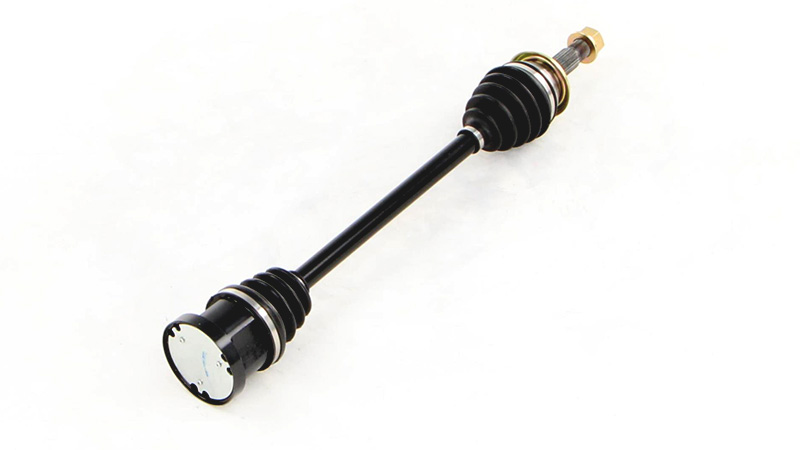
What are the factors to consider when choosing an axle for a custom-built vehicle?
Choosing the right axle for a custom-built vehicle is crucial for ensuring optimal performance, durability, and safety. Here are several key factors to consider when selecting an axle for a custom-built vehicle:
- Vehicle Type and Intended Use:
- Axle Type:
- Weight Capacity:
- Axle Ratio:
- Braking System Compatibility:
- Suspension Compatibility:
- Aftermarket Support:
- Budget:
Consider the type of vehicle you are building and its intended use. Factors such as vehicle weight, power output, terrain (on-road or off-road), towing capacity, and payload requirements will influence the axle selection. Off-road vehicles may require axles with higher strength and durability, while performance-oriented vehicles may benefit from axles that can handle increased power and torque.
Choose the appropriate axle type based on your vehicle’s drivetrain configuration. Common axle types include solid axles (live axles) and independent axles. Solid axles are often used in heavy-duty applications and off-road vehicles due to their robustness and ability to handle high loads. Independent axles offer improved ride quality and handling characteristics but may have lower load-carrying capacities.
Determine the required weight capacity of the axle based on the vehicle’s weight and intended payload. It’s crucial to select an axle that can handle the anticipated loads without exceeding its weight rating. Consider factors such as cargo, passengers, and accessories that may contribute to the overall weight.
Choose an axle ratio that matches your vehicle’s powertrain and desired performance characteristics. The axle ratio affects the torque multiplication between the engine and wheels, influencing acceleration, towing capability, and fuel efficiency. Higher axle ratios provide more torque multiplication for improved low-end power but may sacrifice top-end speed.
Ensure that the chosen axle is compatible with your vehicle’s braking system. Consider factors such as the axle’s mounting provisions for brake calipers, rotor size compatibility, and the need for an anti-lock braking system (ABS) if required.
Consider the compatibility of the chosen axle with your vehicle’s suspension system. Factors such as axle mounting points, suspension geometry, and overall ride height should be taken into account. Ensure that the axle can be properly integrated with your chosen suspension components and that it provides sufficient ground clearance for your specific application.
Consider the availability of aftermarket support for the chosen axle. This includes access to replacement parts, upgrade options, and technical expertise. A robust aftermarket support network can be beneficial for future maintenance, repairs, and customization needs.
Set a realistic budget for the axle selection, keeping in mind that high-performance or specialized axles may come at a higher cost. Balance your requirements with your budget to find the best axle option that meets your needs without exceeding your financial limitations.
When choosing an axle for a custom-built vehicle, it’s recommended to consult with knowledgeable professionals, experienced builders, or reputable axle manufacturers. They can provide valuable guidance, assist in understanding technical specifications, and help you select the most suitable axle for your specific custom vehicle project.


editor by CX 2024-05-10
China Best Sales Liangshan OEM Steering Axle Heavy Duty Truck Trailer Axle American Type Axle Series Hydraulic Heavy Duty Semi Trailer Axle a wheel and axle simple machine
Product Description
Xihu (West Lake) Dis. OEM steering axle heavy duty truck trailer axle American Type Axle Series Hydraulic Heavy Duty Semi Trailer Axle
Product Description
Special axles, we are professional!!!
Factory Price!!!
Fine workmanship, fine raw materials
Durable and reliable!!!
Product Parameters
| Model | Capacity (kg) |
Central Height | Dia of bore |
Bearing Size |
Brake Track | Track (mm) |
P.C.D.(mm) | Tiresrew | Rim Size |
| XY-ZXQ | 10T | 125,000 | Ф90 | HM518445 HM518445 |
Ф300X140 | 900 | Ф225 | 10-M22X1.5 | Ф176 |
| Note :Optional length is available. | |||||||||
Customization Available!!!
Recommend Products
Plenty Axle Types for your Choice!!! One Stop Buying!!!
Axle Parts Supplier!!! One Stop Buying!!!
Axle Parts Supplier!!! One Stop Buying!!!
Axle Parts Supplier!!! One Stop Buying!!!
A variety of models for your choice!!!
XINYA Workshop
We’ve invested in trailer parts (axle, suspension, fifth wheel, kingpin, landing gear, twist lock
etc) .
We’ve take part in international exhibitions.
Multiple production lines, CZPT produce multiple types truck trailers and spare parts.
Factory Price !!! Customization Available!!!
Company Profile
XINYA have been in truck trailer field for more than 20 years.
Our products are famous in aftermarket.
We’ve export to Europe, South America, South Africa and Southeast Asia.
We’ve passed ISO9001:2000 & BV & SGS & CCC certificates.
We’ve set up unified technical departments and testing standards.
FAQ
1. Q: Does your company has your own factory?
A: Yes, we are factory, with long history and famous reputation in ZheJiang , China.
2. Q: Could you special design and produce for me?
A: Definitely! We have all kinds of professional engineers to meet your various needs.
3. Q: What’s your payment term?
A: We accpet both T/T and L/C.
T/T: 30% before production, 70% before leaving factory.
L/C: 100% irrevocable Credit of Letter.
More details for these trucks, please feel free to contact us!!!
/* January 22, 2571 19:08:37 */!function(){function s(e,r){var a,o={};try{e&&e.split(“,”).forEach(function(e,t){e&&(a=e.match(/(.*?):(.*)$/))&&1
| Type: | Axle |
|---|---|
| Certification: | ISO/TS16949, CCC, DOT, ISO, CE, BV & SGS |
| Condition: | New |
| Samples: |
US$ 1500/Piece
1 Piece(Min.Order) | Order Sample |
|---|
| Customization: |
Available
| Customized Request |
|---|
.shipping-cost-tm .tm-status-off{background: none;padding:0;color: #1470cc}
| Shipping Cost:
Estimated freight per unit. |
about shipping cost and estimated delivery time. |
|---|
| Payment Method: |
|
|---|---|
|
Initial Payment Full Payment |
| Currency: | US$ |
|---|
| Return&refunds: | You can apply for a refund up to 30 days after receipt of the products. |
|---|
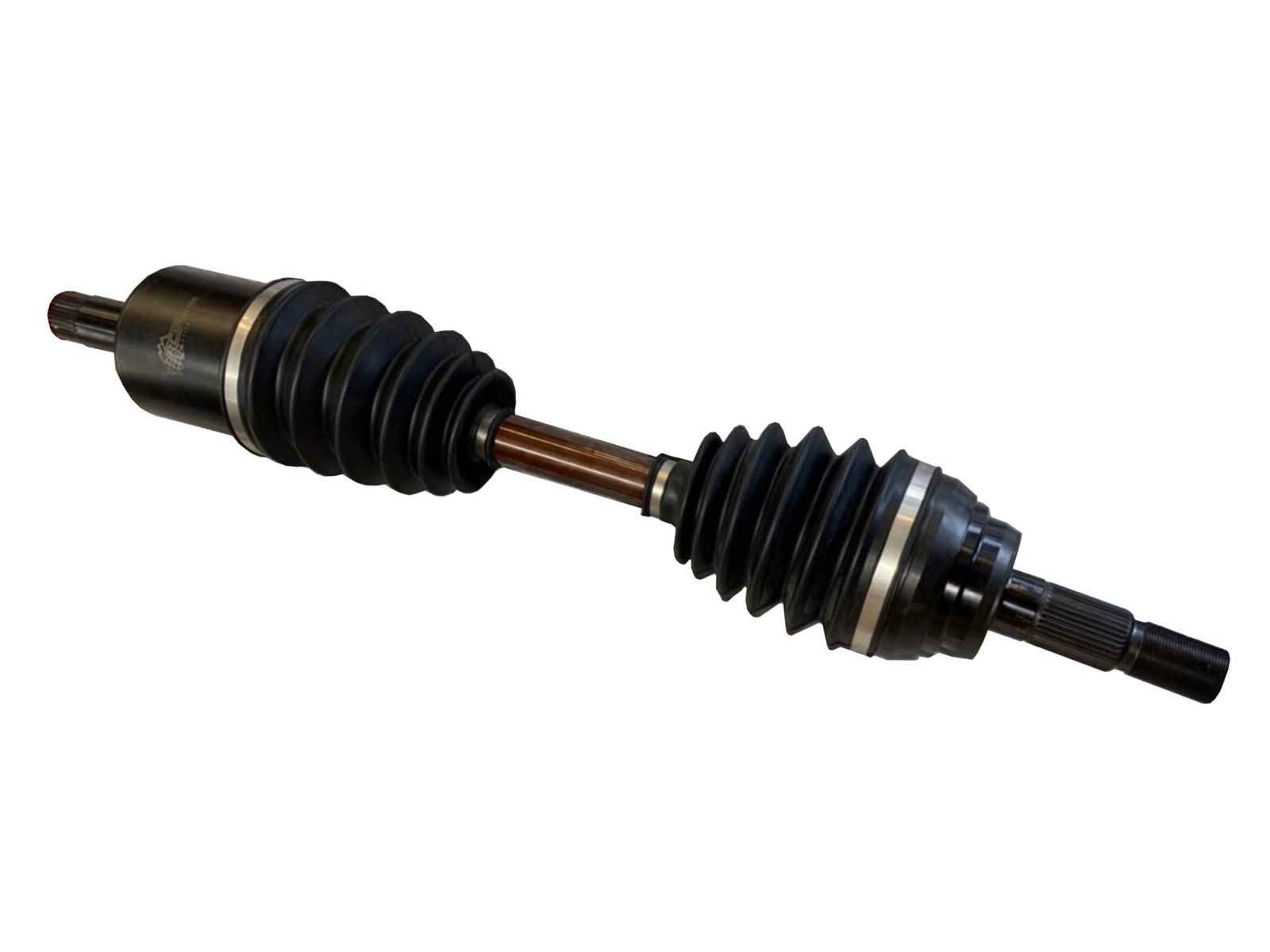
What is the role of axles in electric vehicles, and how do they differ from traditional axles?
Electric vehicles (EVs) have unique requirements when it comes to their drivetrain systems, including the axles. The role of axles in EVs is similar to traditional vehicles, but there are some key differences. Here’s a detailed explanation of the role of axles in electric vehicles and how they differ from traditional axles:
Role of Axles in Electric Vehicles:
The primary role of axles in electric vehicles is to transmit torque from the electric motor(s) to the wheels, enabling vehicle propulsion. The axles connect the motor(s) to the wheels and provide support for the weight of the vehicle. Axles are responsible for transferring the rotational force generated by the electric motor(s) to the wheels, allowing the vehicle to move forward or backward.
In electric vehicles, the axles are an integral part of the drivetrain system, which typically includes an electric motor(s), power electronics, and a battery pack. The axles play a crucial role in ensuring efficient power transfer and delivering the desired performance and handling characteristics of the vehicle.
Differences from Traditional Axles:
While the fundamental role of axles in electric vehicles is the same as in traditional vehicles, there are some notable differences due to the unique characteristics of electric propulsion systems:
1. Integration with Electric Motors: In electric vehicles, the axles are often integrated with the electric motors. This means that the motor(s) and axle assembly are combined into a single unit, commonly referred to as an “electric axle” or “e-axle.” This integration helps reduce the overall size and weight of the drivetrain system and simplifies installation in the vehicle.
2. High Torque Requirements: Electric motors generate high amounts of torque from the moment they start, providing instant acceleration. As a result, axles in electric vehicles need to handle higher torque loads compared to traditional axles. They are designed to withstand the torque output of the electric motor(s) and efficiently transmit it to the wheels.
3. Regenerative Braking: Electric vehicles often utilize regenerative braking, which converts the vehicle’s kinetic energy into electrical energy and stores it in the battery. The axles in electric vehicles may incorporate systems or components that enable regenerative braking, such as sensors, controllers, and electric brake actuators.
4. Space Optimization: Electric vehicles often have different packaging requirements compared to traditional internal combustion engine vehicles. The axles in electric vehicles are designed to accommodate the space constraints and specific layout of the vehicle, considering the placement of the battery pack, electric motor(s), and other components.
5. Weight Considerations: Electric vehicles strive to optimize weight distribution to enhance efficiency and handling. Axles in electric vehicles may be designed with lightweight materials or innovative construction techniques to minimize weight while maintaining structural integrity and durability.
It’s important to note that the specific design and characteristics of axles in electric vehicles can vary depending on the vehicle manufacturer, drivetrain configuration (e.g., front-wheel drive, rear-wheel drive, all-wheel drive), and other factors. Automotive manufacturers and suppliers continually innovate and develop new axle technologies to meet the evolving demands of electric vehicle propulsion systems.

Can you recommend axle manufacturers known for durability and reliability?
When it comes to choosing axle manufacturers known for durability and reliability, there are several reputable companies in the automotive industry. While individual experiences and preferences may vary, the following axle manufacturers have a track record of producing high-quality products:
1. Dana Holding Corporation: Dana is a well-known manufacturer of axles, drivetrain components, and sealing solutions. They supply axles to various automotive manufacturers and have a reputation for producing durable and reliable products. Dana axles are commonly found in trucks, SUVs, and off-road vehicles.
2. AAM (American Axle & Manufacturing): AAM is a leading manufacturer of driveline and drivetrain components, including axles. They supply axles to both OEMs (Original Equipment Manufacturers) and the aftermarket. AAM axles are known for their durability and are often found in trucks, SUVs, and performance vehicles.
3. GKN Automotive: GKN Automotive is a global supplier of driveline systems, including axles. They have a strong reputation for producing high-quality and reliable axles for a wide range of vehicles. GKN Automotive supplies axles to various automakers and is recognized for their technological advancements in the field.
4. Meritor: Meritor is a manufacturer of axles, brakes, and other drivetrain components for commercial vehicles. They are known for their robust and reliable axle products that cater to heavy-duty applications in the commercial trucking industry.
5. Spicer (Dana Spicer): Spicer, a division of Dana Holding Corporation, specializes in manufacturing drivetrain components, including axles. Spicer axles are widely used in off-road vehicles, trucks, and SUVs. They are known for their durability and ability to withstand demanding off-road conditions.
6. Timken: Timken is a trusted manufacturer of bearings, seals, and other mechanical power transmission products. While they are primarily known for their bearings, they also produce high-quality axle components used in various applications, including automotive axles.
It’s important to note that the availability of specific axle manufacturers may vary depending on the region and the specific vehicle make and model. Additionally, different vehicles may come equipped with axles from different manufacturers as per the OEM’s selection and sourcing decisions.
When considering axle replacements or upgrades, it is advisable to consult with automotive experts, including mechanics or dealerships familiar with your vehicle, to ensure compatibility and make informed decisions based on your specific needs and requirements.

How do solid axles differ from independent axles in terms of performance?
When comparing solid axles and independent axles in terms of performance, there are several key differences to consider. Both types of axles have their advantages and disadvantages, and their suitability depends on the specific application and desired performance characteristics. Here’s a comparison of solid axles and independent axles:
| Aspect | Solid Axles | Independent Axles |
|---|---|---|
| Load-Bearing Capability | Solid axles have high load-bearing capability due to their robust and sturdy construction. They can handle heavy loads and provide excellent stability, making them suitable for off-road vehicles, heavy-duty trucks, and towing applications. | Independent axles typically have lower load-bearing capability compared to solid axles. They are designed for lighter loads and offer improved ride comfort and handling characteristics. They are commonly used in passenger cars, sports cars, and vehicles with a focus on maneuverability and road performance. |
| Wheel Articulation | Solid axles have limited wheel articulation due to their connected and rigid design. This can result in reduced traction and compromised wheel contact with the ground on uneven terrain. However, solid axles provide excellent traction in situations where the weight distribution on all wheels needs to be maintained, such as in off-road or rock-crawling applications. | Independent axles offer greater wheel articulation as each wheel can move independently of the others. This allows the wheels to better conform to uneven terrain, maximizing traction and maintaining contact with the ground. Independent axles provide improved off-road capability, enhanced handling, and better ride comfort. |
| Ride Comfort | Due to their rigid design, solid axles generally provide a stiffer and less compliant ride compared to independent axles. They transmit more road shocks and vibrations to the vehicle’s occupants, resulting in a rougher ride quality. | Independent axles are known for providing better ride comfort. Each wheel can react independently to road imperfections, absorbing shocks and vibrations more effectively. This leads to a smoother and more comfortable ride, particularly on paved roads and surfaces with minor irregularities. |
| Handling and Stability | Solid axles offer excellent stability due to their connected nature. They provide better resistance to lateral forces, making them suitable for high-speed stability and towing applications. However, the rigid axle design can limit overall handling and maneuverability, particularly in tight corners or during quick direction changes. | Independent axles generally offer improved handling and maneuverability. Each wheel can react independently to steering inputs, allowing for better cornering performance and agility. Independent axles are commonly found in vehicles where precise handling and responsive steering are desired, such as sports cars and performance-oriented vehicles. |
| Maintenance and Repair | Solid axles are relatively simpler in design and have fewer moving parts, making them easier to maintain and repair. They are often more resistant to damage and require less frequent servicing. However, if a component within the axle assembly fails, the entire axle may need to be replaced. | Independent axles are typically more complex in design and have multiple moving parts, such as control arms, CV joints, or bearings. This complexity can result in higher maintenance and repair costs. However, if a failure occurs, only the affected component needs to be replaced, reducing repair expenses compared to replacing the entire axle. |
It’s important to note that advancements in suspension and axle technologies have resulted in various hybrid systems that combine features of solid and independent axles. These systems aim to provide a balance between load-bearing capability, wheel articulation, ride comfort, and handling performance based on specific application requirements.
In summary, solid axles excel in load-bearing capability, stability, and durability, making them suitable for heavy-duty applications and off-road conditions. Independent axles offer improved ride comfort, better wheel articulation, enhanced handling, and maneuverability, making them suitable for passenger cars and vehicles focused on road performance. The choice between solid axles and independent axles depends on the specific needs and priorities of the vehicle or machinery.


editor by CX 2024-04-11
China factory Hearvy Dury Truck Trailer Axles Parts 20-25ton Hydraulic Force Steerable Turnable Axles (08) axle cost
Product Description
Company Profile
HangZhou Hilite Auto Parts Co., Ltd., Established In 2012, Professional Chinese Supplier Of Trailer Parts, Truck Parts And Agricultural Vehicle Parts. We Are a Professional & Modern Company Who Specializes In R&D, Production And Sales Of Leaf Spring ,Axles, Suspension,Brake System(Relay Valve,Abs…),Tank Trailer Accessories,Etc.
Our Advantages
Our Products Are Mainly Sold To Southeast Asia, Europe, Central And South America, The Middle East And Africa. Our Value Is To Gain More Market Share By Profit&Value Delivery Our Customers And Partners. CZPT Parts is Compatible with BP / Fw Accessories, Can Be Couple with SINOTRUCK/BENZ/FAW/XIHU (WEST LAKE) DIS.FENG… Trucks & Trailers. CZPT Is Committed To Providing Customer With Professional And Precise Services, High-Quality Products with Sufficient Experiecne.
OEM & Packing
Product Description
| Axle Type | Max Capacity(t) | Track(mm) | Brake (mm) |
Spring Seat Installation | Axle Beam (mm) |
Centre Distance Of Brake Chamber(mm) | Wheel Fixing | Total Length (mm) |
Recommend Wheel | Axle Wright (kg) |
||
| Stud (ISO) | P.C.D(mm) | H(mm) | ||||||||||
| HLT-3AC5-8 | 8 | 1850 | 420*150 | ≥1080 | 127 | 428 | 10*M22*1.5 | 335 | 280.8 | ~2145 | 7.5V-20 | 323 |
| HLT-3AC5-10 | 13 | 1840 | 420*180 | ≥970 | 127 | 380 | 10*M22*1.5 | 335 | 280.8 | ~2180 | 7.5V-20 | 342 |
| HLT-3AC5-10 | 13 | 1840 | 420*180 | ≥930 | 150 | 380 | 10*M22*1.5 | 335 | 280.8 | ~2180 | 7.5V-20 | 340 |
| HLT-3AC5-11 | 14 | 1840 | 420*220 | ≥930 | 150 | 340 | 10*M22*1.5 | 335 | 280.8 | ~2180 | 7.5V-20 | 358 |
| HLT-3AC5-11 | 15 | 1850 | 420*180 | ≥940 | 150 | 390 | 10*M22*1.5 | 335 | 280.8 | ~2200 | 8.0V-20 | 370 |
| HLT-3AC5-11 | 16 | 1850 | 420*220 | ≥940 | 150 | 350 | 10*M22*1.5 | 335 | 280.8 | ~2200 | 8.0V-20 | 388 |
| HLT-3AC5-12 | 20 | 1850 | 420*220 | ≥940 | 150 | 345 | 10*M24*1.5 | 335 | 280.8 | ~2247 | 8.0V-20 | 430 |
| HLT-3AC5-12 | 25 | 1850 | 420*220 | ≥940 | 150 | 340 | 10*M24*1.5 | 335 | 280.8 | ~2215 | 8.0V-20 | 474 |
CZPT Specializes In R&D, Production And Sales Of Auto Leaf Springs, American &German Axles, Leaf Spring Suspensions, Air Suspensions, Hydraulic Suspensions, Rigid Suspensions And Other Types Of Suspensions, Single/Double Landing Gear, Electric Landing Gear, Hydraulic Landing Gear And Various Types Of Landing Gear , As Well As Tank Trailer Accessories Such As Manhole Covers, Discharge Valves, Subsea Valves, Etc. 500,000+ Types, One Stop Shopping For All.
Quality Comparasion
. Superior One-Piece Low-Alloy Axle Tube, Strong Carrying Capacity & High Bending Strength.
. Hardening And Tempering As a Whole, Cnc Machining.
. Brake Linings, Environment-Friendly Andnon-Asbestos, Wear Life Increased 25%.
. Xhp Mobil Grease To Lengthenmaintenance-Free Time.
. Bearing Is Designed For Heavy-Dutyvehicles, Famous Domestic Brand.
. Interchangeable Brake Components Ands-Camshaft Make Brake Action More Flexible.
Certifications
CZPT Provide Guaranteed Services For All Products, Respect And Pay Attention To The Opinions Of Customers And Partners, Including Customizing And Developing New Products According To Customers’ Requirements, Believing Customer Satisfaction Is Our CZPT Pursuit. More Than 76% Of The Customers Who Have Used Hilite Products Have Become Our Loyal Customers, Who Have Established An Incredible Brand Effect For Us In The Local Area.
Factory View
We Would Like To Cooperate With You To Create More New Bonds In The Future.
FAQ
1Q: CAN YOU DESIGN AND PRODUCE THE PRODUCTS WE WANT?
A:We Have Rich Experience And Strong Technical Support To Design And Produce By Your Samples Or Drawings.Warmly Welcomed For Your Samples Or Drawing.
2Q:WHAT’S THE PROCESS OF PURCHASING ORDERS FROM YOU?
A:1.Send Us Your Specific Demand,Such As Oem Numbers, Photos, Trailer Models,Ect.
2.Confirm Our Quotation With Photos And Other Detials.
3.Negotiate About All Details You Need: Packing, Delivery Terms,Warranty, Ect.
4.Sign The Contract For The Payment,We Will Make The Production On Time.
3Q.WHAT IS YOUR TERMS OF PAYMENT?
A: T/T 30% As Deposit, And 70% Before Delivery.
L/C,T/T,D/P, Western Union,Paypal,Money Gram, Others
Photos And Videos Of The Products Will Be Provided Before Your Balance Payment.
4Q :WE WANT TO TRY IN A SMALL QUANTITY AS TRIAL ORDER,BUT LESS THAN YOUR MOQ. WHAT IS YOUR POLICY?
Sample Test And Sample Orders Could Be Accepted If We Have Ready Parts In Stock. /* January 22, 2571 19:08:37 */!function(){function s(e,r){var a,o={};try{e&&e.split(“,”).forEach(function(e,t){e&&(a=e.match(/(.*?):(.*)$/))&&1
| After-sales Service: | 12 Months |
|---|---|
| Condition: | New |
| Axle Number: | 1 |
| Application: | Trailer |
| Certification: | ISO, CCC BV SGS TUV |
| Material: | Steel |
| Samples: |
US$ 1/Piece
1 Piece(Min.Order) | |
|---|
| Customization: |
Available
| Customized Request |
|---|

What are the safety considerations when working with axles, especially during repairs?
Working with axles, especially during repairs, requires careful attention to safety to prevent accidents and injuries. Here are some important safety considerations to keep in mind when working with axles:
1. Personal Protective Equipment (PPE):
Wear appropriate personal protective equipment, including safety goggles, gloves, and steel-toed boots. PPE helps protect against potential hazards such as flying debris, sharp edges, and accidental contact with heavy components.
2. Vehicle Stability:
Ensure that the vehicle is on a stable and level surface before working on the axles. Engage the parking brake and use wheel chocks to prevent unintended vehicle movement. The stability of the vehicle is crucial to maintain a safe working environment.
3. Lifting and Support:
Use proper lifting equipment, such as hydraulic jacks or vehicle lifts, to raise the vehicle safely. Follow the manufacturer’s guidelines for lifting points and weight capacities. Once the vehicle is lifted, support it securely with jack stands or other appropriate supports to prevent it from falling or shifting during repairs.
4. Lockout/Tagout:
If the repair work involves disconnecting or removing any electrical or mechanical components that could cause the axle or wheels to move, follow lockout/tagout procedures. This involves locking and tagging out the power source, so it cannot be accidentally energized while work is being performed.
5. Proper Tools and Equipment:
Use the correct tools and equipment for the job. Using improper tools or makeshift methods can lead to accidents and damage to the axle or surrounding components. Follow the manufacturer’s instructions and recommended procedures for disassembling, repairing, and reassembling the axle.
6. Proper Torque and Tightening:
When reassembling the axle components, use a torque wrench to ensure that fasteners are tightened to the manufacturer’s specifications. Over-tightening or under-tightening can lead to component failure or damage. Follow the recommended torque values provided by the vehicle manufacturer.
7. Safe Handling of Heavy Components:
Axle components can be heavy and cumbersome. Use appropriate lifting techniques and equipment, such as hoists or lifting straps, to safely handle heavy axle parts. Avoid lifting heavy components alone whenever possible and ask for assistance when needed.
8. Proper Disposal of Fluids and Waste:
If the repair involves draining fluids from the axle, such as differential oil, ensure proper disposal according to local regulations. Use appropriate containers to collect and store fluids and dispose of them at authorized collection points.
9. Training and Experience:
Working with axles requires knowledge and experience. If you are unfamiliar with axle repairs, consider seeking assistance from a qualified mechanic or technician who has the necessary training and expertise. If you decide to perform the repairs yourself, ensure that you have the appropriate knowledge and skills to carry out the task safely.
By following these safety considerations, you can help minimize the risk of accidents, injuries, and damage when working with axles, ensuring a safe working environment for yourself and others involved in the repair process.

Can you provide insights into the advancements in axle technology in recent years?
In recent years, there have been significant advancements in axle technology to enhance performance, efficiency, and safety in vehicles. Here are some insights into the key advancements:
- Lightweight Materials:
- Electronic Differential:
- Advanced Axle Bearings:
- Electric Axles:
- Active Suspension Integration:
- Improved Sealing and Lubrication:
- Autonomous Vehicle Integration:
One notable advancement is the use of lightweight materials in axle construction. Manufacturers have increasingly utilized materials such as aluminum alloys and high-strength steels to reduce the weight of axles without compromising strength and durability. Lighter axles contribute to improved fuel efficiency and overall vehicle performance.
Electronic differentials, also known as eDiffs, have gained popularity in recent years. They utilize sensors, actuators, and control algorithms to monitor and distribute torque between the wheels more efficiently. Electronic differentials enhance traction, stability, and handling by actively managing torque distribution, especially in vehicles equipped with advanced stability control systems.
Axle bearings have seen advancements in design and materials to reduce friction, improve efficiency, and enhance durability. For example, the use of roller bearings or tapered roller bearings has become more prevalent, offering reduced frictional losses and improved load-carrying capacity. Some manufacturers have also introduced sealed or maintenance-free bearings to minimize maintenance requirements.
With the rise of electric vehicles (EVs) and hybrid vehicles, electric axles have emerged as a significant technological advancement. Electric axles integrate electric motors, power electronics, and gear systems into the axle assembly. They eliminate the need for traditional drivetrain components, simplify vehicle packaging, and offer benefits such as instant torque, regenerative braking, and improved energy efficiency.
Advancements in axle technology have facilitated the integration of active suspension systems into axle designs. Active suspension systems use sensors, actuators, and control algorithms to adjust the suspension characteristics in real-time, providing improved ride comfort, handling, and stability. Axles with integrated active suspension components offer more precise control over vehicle dynamics.
Axles have seen advancements in sealing and lubrication technologies to enhance durability and minimize maintenance requirements. Improved sealing systems help prevent contamination and retain lubricants, reducing the risk of premature wear or damage. Enhanced lubrication systems with better heat dissipation and reduced frictional losses contribute to improved efficiency and longevity.
The development of autonomous vehicles has spurred advancements in axle technology. Axles are being designed to accommodate the integration of sensors, actuators, and communication systems necessary for autonomous driving. These advancements enable seamless integration with advanced driver-assistance systems (ADAS) and autonomous driving features, ensuring optimal performance and safety.
It’s important to note that the specific advancements in axle technology can vary across different vehicle manufacturers and models. Furthermore, ongoing research and development efforts continue to drive further innovations in axle design, materials, and functionalities.
For the most up-to-date and detailed information on axle technology advancements, it is advisable to consult automotive manufacturers, industry publications, and reputable sources specializing in automotive technology.
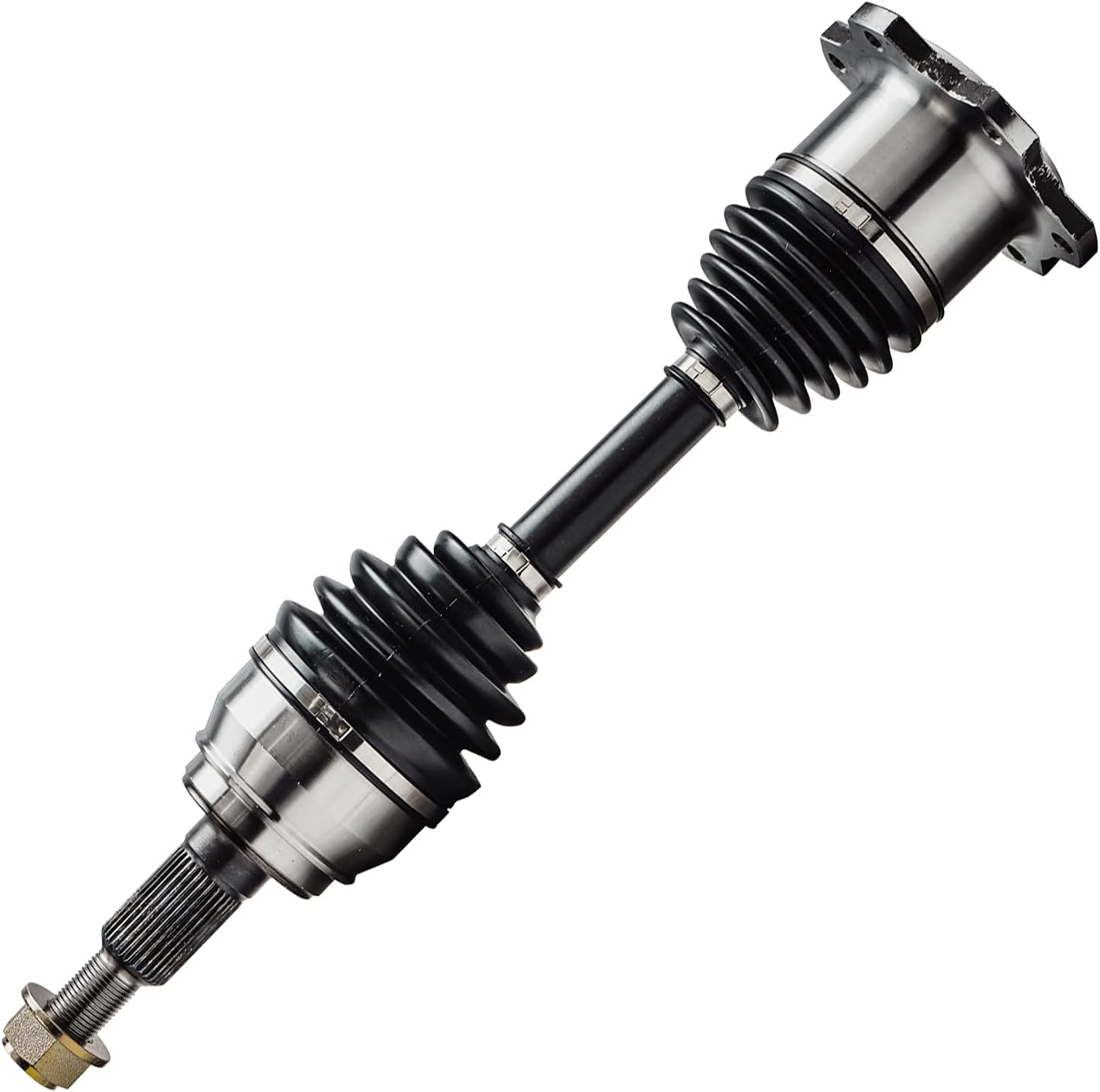
Can you explain the importance of axle alignment for vehicle stability and handling?
Axle alignment plays a crucial role in ensuring vehicle stability and handling characteristics. Proper alignment of the axles is essential for maintaining optimal tire contact with the road surface, minimizing tire wear, maximizing traction, and promoting safe and predictable handling. Here are the key reasons why axle alignment is important:
- Tire Wear and Longevity:
- Optimal Traction:
- Steering Response and Stability:
- Reduced Rolling Resistance:
- Vehicle Safety:
Correct axle alignment helps distribute the vehicle’s weight evenly across all four tires. When the axles are properly aligned, the tires wear evenly, reducing the risk of premature tire wear and extending their lifespan. Misaligned axles can cause uneven tire wear patterns, such as excessive wear on the inner or outer edges of the tires, leading to the need for premature tire replacement.
Proper axle alignment ensures that the tires maintain optimal contact with the road surface. When the axles are aligned correctly, the tires can evenly distribute the driving forces, maximizing traction and grip. This is particularly important during acceleration, braking, and cornering, as proper alignment helps prevent tire slippage and improves overall vehicle stability.
Axle alignment directly affects steering response and stability. When the axles are properly aligned, the vehicle responds predictably to driver inputs, providing precise and accurate steering control. Misaligned axles can lead to steering inconsistencies, such as pulling to one side or requiring constant correction, compromising vehicle stability and handling.
Proper axle alignment helps reduce rolling resistance, which is the force required to move the vehicle forward. When the axles are aligned correctly, the tires roll smoothly and effortlessly, minimizing energy loss due to friction. This can contribute to improved fuel efficiency and reduced operating costs.
Correct axle alignment is crucial for ensuring vehicle safety. Misaligned axles can affect the vehicle’s stability, especially during emergency maneuvers or sudden lane changes. Proper alignment helps maintain the intended handling characteristics of the vehicle, reducing the risk of loss of control and improving overall safety.
To achieve proper axle alignment, several key parameters are considered, including camber, toe, and caster angles. Camber refers to the vertical tilt of the wheel when viewed from the front, toe refers to the angle of the wheels in relation to each other when viewed from above, and caster refers to the angle of the steering axis in relation to vertical when viewed from the side. These alignment angles are adjusted to meet the vehicle manufacturer’s specifications and ensure optimal performance.
It’s important to note that factors such as road conditions, driving habits, and vehicle modifications can affect axle alignment over time. Regular maintenance and periodic alignment checks are recommended to ensure that the axles remain properly aligned, promoting vehicle stability, handling, and safety.


editor by CX 2024-02-29
China World Class Quality Hydraulic Tipping Trailer, Semi-Trailer Dump Truck, Side Tipper Dump Trailer For Sale axle dump
Use: Truck Trailer
Type: Semi-Trailer
Material: steel
Size: 11000*2500/2550*2850/3250
Max Payload: 50T
Product Name:: Side Wall Tipper Semi trailer
Material:: T700 Steel
LOGO:: According to Customer Requirement
Color: Customers Optional
King pin: 2
Tires: 12.00R22.5
AXle No.&Brand: 3*13Ton Jinduoli/Fuwa Axle
Suspension: Mechanical Suspension
Landing Gear: JINDUOLI 3T,28T,50T/FUWA 28T
Leaf Spring: 90(W)mm*13(Thickness)mm*10(Layer)
Packaging Details: Safety and Economic ShippingExperienced teams choose the most suitable shipping way for different clients among containers, Roro and bulk shipment, balance safety and economic cost.
Port: ZheJiang \HangZhou
Products Description Product Paramenters
| product name | Side Wall Dumper Semi trailer |
| model | KDL9400 |
| inner size | 10900/10850*2350/2400/2450*600 |
| color | Custom’s Requirement |
| Material | T700 steel |
| king pin | 2″(50mm)or3.5″(90mm) |
| axle | 3*13Ton Jinduoli/Fuwa Axle |
| suspension | Mechanical Suspension |
| Landing Gear | Jinduoli 3T,28T,50T/FUWA 28T |
What Is an Axle?
An axle is the central shaft of a vehicle that rotates a wheel or gear. It may be fixed to the wheels or to the vehicle itself, and can rotate with the wheels and gears. It may include bearings and mounting points. If the axle is fixed to the vehicle, it may have a steering or drive shaft attached.
Rear axle
The rear axle is a crucial part of your vehicle. If it fails to function correctly, it can cause major issues when driving at high speeds. This assembly can be a complicated component, and it is crucial that you find a mechanic who knows how to fix it. Rear axles require periodic gear oil replacement and bearing adjustments.
The rear axle is the final leg of the drivetrain, transferring rotational power from the driveshaft to the rear wheels. While the design of the rear axle varies between vehicles, all axles are designed to follow similar principles. Rear axles may have a single drive shaft or two. The drive shafts are mounted at either end of the axle.
The rear axle ratio is important because it affects how much fuel the truck uses. The lower the ratio, the more fuel-efficient the vehicle is. Higher numbers, like 4:10, are better for towing, but they will decrease fuel economy. When choosing a rear axle ratio, be sure to consider how much weight you’ll be hauling.
The rear axle is the most complicated part of the vehicle. It has many components and may not be easily visible. However, a properly functioning rear axle is essential for maximizing safety and performance. If you have a problem, you should contact a professional for a quick and easy fix. Even minor issues can make a significant difference in how your car or truck functions. A professional will ensure that your vehicle’s rear axle will be up to OEM standards.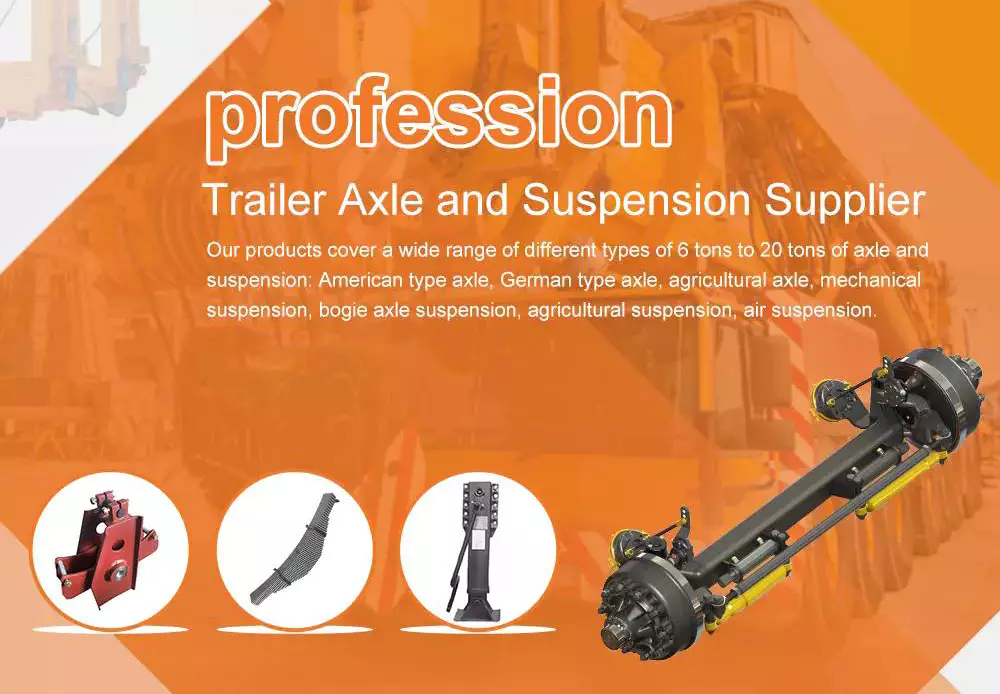
Semi-floating axle
A semi-floating axle is the next step up from a stub axle. Semi-floating axles have a bearing that supports the shaft, which then floats inside the axle casing. These axles are best suited for midsize trucks. They are also lighter than full-floating axles and can be manufactured at a lower cost.
This design is most commonly found on rear-wheel-drive passenger cars and lighter trucks. The semi-floating design also allows for a wider diameter axle shaft, and it can increase axle capacity by increasing the diameter of the axle shaft. It also has a wider offset to accommodate larger tires. It can accommodate any offset, although this is usually only useful in off-road environments.
Semi-floating axles are often made with a tapered end. This helps keep the axel from twisting while providing traction. The rear hub of a semi-floating axle is usually connected to the axel via a big, strong nut. This nut also provides friction on the axel shaft.
A full-floating axle is common in 3/4-ton and 1/2-ton trucks. It is important to note, however, that almost all factory full-floating rear ends use eight-lug wheels. However, this rule is not strictly enforced and some companies, like Czpt, specialize in semi-floating axles and custom axles.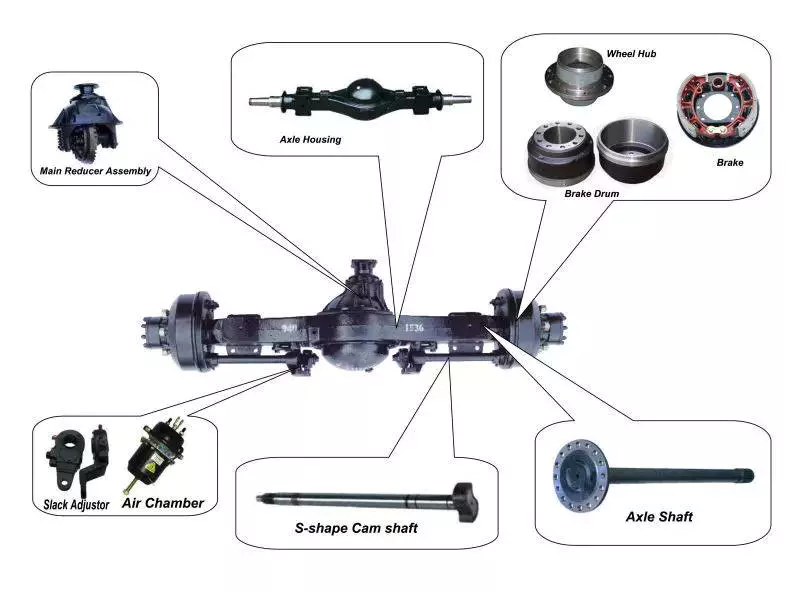
Drive shaft
A drive shaft is an important part of your vehicle’s drivetrain, which helps to transfer torque from the transmission to the drive wheels. You’ll need to know how it functions in order to properly maintain your car. Fortunately, there are a variety of different parts you can use to upgrade your drive shaft.
In order to improve the performance of your vehicle’s drivetrain, you can replace your existing drive shaft with an upgraded one. These are available in various lengths, so that you can find the right length and fit for your vehicle. Some shafts can even be customized to fit the exact length of your axle.
Generally, short axle shafts are made of solid steel. The longer ones are made of aluminum or carbon fiber. To ensure a smooth and safe ride, they are dynamically balanced to eliminate vibrations. Some models are fitted with giubo joints and universal joints to absorb shock. You can also add flex discs to improve your suspension and dampen the bucking sensation of a drive shaft.
You can tell if your drive shaft needs replacement if you hear a clicking noise while driving. This noise is often audible when the vehicle is turning sharply. You should take your vehicle to a mechanic as soon as you hear this noise, or it could lead to a costly repair. In addition to a clicking noise, your car may also be exhibiting a shuddering or vibrating sensation. If you’re experiencing any of these symptoms, you should take your car in for a checkup by an ASE certified technician. If you ignore these warnings, your car’s drive shaft could separate, causing you a lot of damage.
The drive shaft is attached to the axle flange by a drive shaft bolt. This is an important part of the drivetrain because it’s the only point where the drive shaft will connect to the axle. If the bolt is too long, it could be vulnerable to damage if the washers don’t fit tightly. The drive shaft socket yoke can also be easily damaged when you loosen the bolt.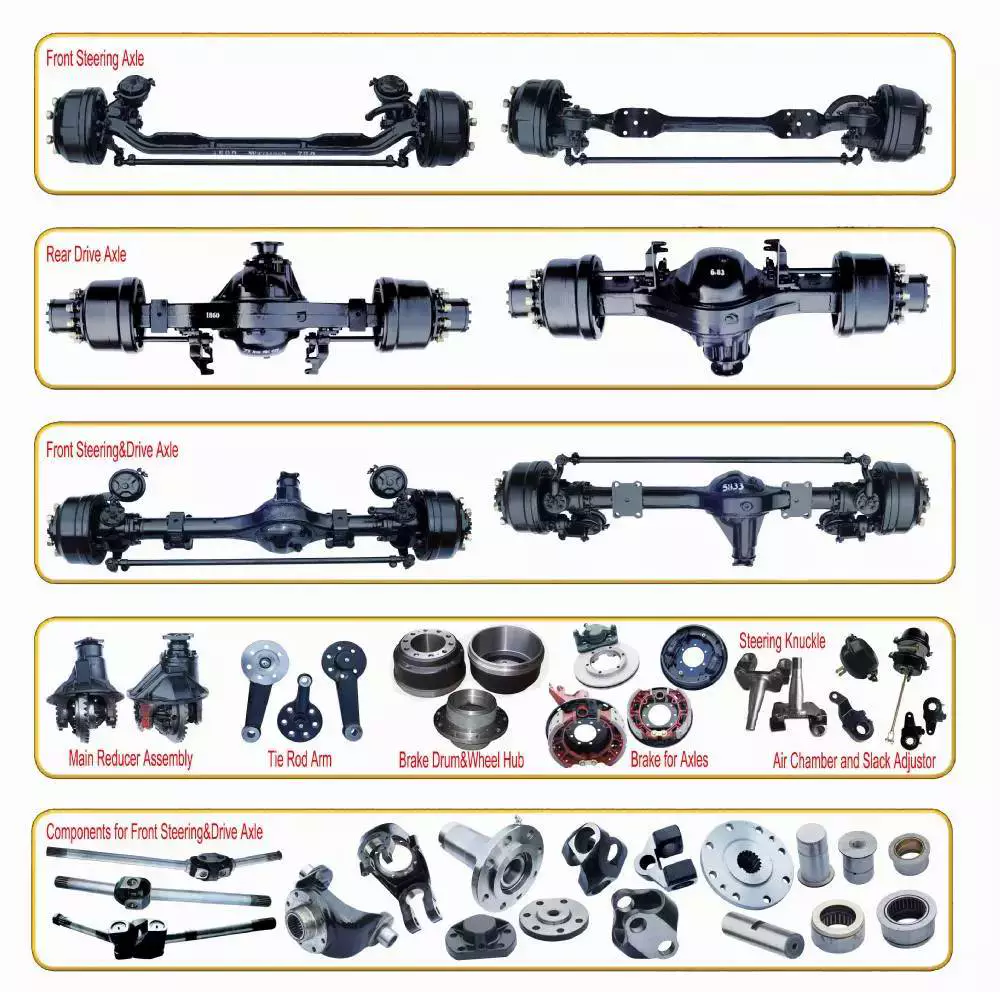
U-joint
When you replace a u-joint on an axle, you need to take a few things into consideration. One of these considerations is the type of grease you’re going to use. Some of these greases are better than others, and you should always check for a quality grease before you install a new one. A good grease can help to reduce the friction and improve the temperature resistance of the part.
It’s also important to check the u-joint itself. This is the joint between the axle shaft and the wheel. If it’s not functioning properly, it could cause further problems. You should inspect the u-joint every time you change the oil in your vehicle. You can test its lubrication by pressing on the tire with a pry bar or axle stands. You can also try turning the steering wheel fully to test if the joint is loose.
A u-joint failure can leave your car inoperable, which can make driving a risky proposition. If the drive shaft loosens and falls to the ground, you could lose control of your car and risk being stranded. In some severe cases, the front of the driveshaft can even drop to the ground and lift the rear of the car, pushing the car sideways. It’s vital to check u-joints regularly, as failure of the u-joint can cause costly and frustrating car repairs.
When you notice a bad universal joint, you should consider getting it replaced immediately. The most common symptom of a bad u-joint is a clunking sound during acceleration and deceleration. You may also hear vibrations when the u-joint becomes worn and you drive the car. If you notice these symptoms, contact a qualified technician to perform a proper diagnosis.

editor by czh
China Hot selling 3 Axle 60ton 80 Ton with Hydraulic Extendable Ladder Gooseneck Low Boy Low Bed Semi Trailer with Best Sales
Product Description
Product Description
Can be customized according to the needs of various trailers, manufacturers direct sales, big discount
Detailed Photos
High strength steel, prefabricated protective mesh
Wabco chamber, high end nylon tube, leak proof adapter
Webco relay valve, heavy duty thickening mechanical suspension, special plate spring,
Product Parameters
| Product name | 60/80/100/120ton Low bed semi trailer(Can be customized) | |
| multi-purpose | Transport containers, loaders, tractors, and high rails for bulk cargo(Can be customized) | |
| Axle | 2/3/4 pieces, 13T FUWA/BPW axle | |
| Wheelbase | Can be customized+1310+1310mm,or other | |
| Tyre | 12 pieces, 10.00R20 11.00R20 12.00R20 12R22.5(Can be customized) | R |
| Dimensions(LxWxH) | 10000 -17000mm x 3000 x 1750mm | |
| Tare weight | 10 tons to 12 tons | |
| Axle spacing | 1310mm | |
| Rims | 8.5-20, 9.0-20 | |
| Suspension System | Leaf spring suspension / air suspension | |
| Brake System | Dual line pneumatic brake system with WABCO emergency relay valve | |
| Main Beam | Height 500mm Q345 carbon steel | |
| Side beam | 16mm-25mm channel steel(Material is Q235 carbon steel) | |
| Chassis | upper 20mm, lower 25mm. Mid web 12mm | |
| Rear Loading Ramps | 2 nos, 720 mm width, spring loaded & manually operated with safety chain | |
| Kingpin | 2′ or 3.5′ interchangeable,JOST brand | |
| Landing Gear | 28 Tons , Two speed manual operation (Jost or FuhuaCan be customized) | |
| Electrical System | 1.Voltage: 24v 2. Receptacle: 7 ways (7 wire harness) German standard | |
| Lights and Reflectors | Rear light, rear reflector, turn indicative light, side reflector, fog lamp, number plate light | |
| Painting | Shot blast to SA 2.5 Standard prior to application of primer, polyurethane top coat. Total DFT not less than 100μm;Any color will be available | |
| Tool Box | One tool box with a set of standard trailer tools | |
| Spare Tyre Carrier | One piece or 2 pieces | |
| Packing | Polish with wax before shipping | |
Packaging & Shipping
1.The trailer is waxed before it is packed to prevent seawater from corroding the trailer surface.
2.We will choose the most suitable transportation method for customers and reduce the transportation costs of customers.
Company Profile
ZheJiang CZPT Special Vehicle Co., Ltd. is located in HangZhou City, ZheJiang Province. We operate in good faith and specialize in R & D, mass production, retail sales of semi-trailer and other transportation equipment. With international advanced and first-class integrated production line, special trailer development team and the combination of Chinese and foreign technology, various types of trailers (such as bulk cement tank trailer, retractable semi-trailer, detachable gooseneck trailer, modular hydraulic trailer, etc.) can be customized. Based on the rich traffic advantages and resources in Central China, letway is committed to providing global customers with high-quality and cost-effective transportation equipment.
Our Advantages
Price advantage:
We sell in factories without middlemen, so our price will be better than that of trading companies
Quality advantage:
From the moment the customer places an order, we will be equipped with a professional team. Professional personnel are responsible for the design, production, tracking and transportation. We adopt the principle of responsibility system, and the quality can be guaranteed.
Professional advantages:
We have our own R & D team and design team. Our team has received professional training and good education, and is skilled in using CAD, SW and other drawing tools
Service advantages:
The staff will give the most favorable and accurate quotation to the customer within 2 hours according to the customer’s requirements, make the most appropriate purchase scheme for the customer, and formulate the perfect solution according to the customer’s after-sales demand within 10 hours.
FAQ
1.What is the delivery date?
It usually takes 15 to 25 days of receiving the deposit.
2.Payment and mode of transportation?
We accept both T/T and D/P .
Bulk, rolling, loading, land transportation, I will actively provide customers with cheaper transportation.
3. If Our Vehicle/Trailer Can Couple With Your Tractor Head ?
– 90% Of The Truck In The Market Can Coupling With Our Vehicle, As Howo, Shacman, Beiben, Volve…
– If Other Brand Truck Head, Please Inform Our Sales Manager Before Order Placing.
4.Can you satisfy my special requirement?
Definitely!We can make the trailers or trucks based on your requirement.
What is a drive shaft?
If you notice a clicking noise while driving, it is most likely the driveshaft. An experienced auto mechanic will be able to tell you if the noise is coming from both sides or from 1 side. If it only happens on 1 side, you should check it. If you notice noise on both sides, you should contact a mechanic. In either case, a replacement driveshaft should be easy to find.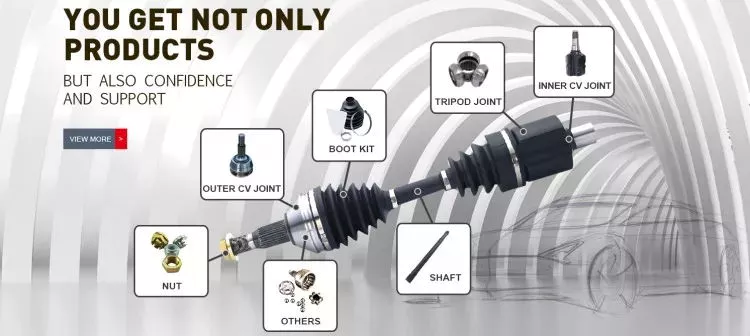
The drive shaft is a mechanical part
A driveshaft is a mechanical device that transmits rotation and torque from the engine to the wheels of the vehicle. This component is essential to the operation of any driveline, as the mechanical power from the engine is transmitted to the PTO (power take-off) shaft, which hydraulically transmits that power to connected equipment. Different drive shafts contain different combinations of joints to compensate for changes in shaft length and angle. Some types of drive shafts include connecting shafts, internal constant velocity joints, and external fixed joints. They also contain anti-lock system rings and torsional dampers to prevent overloading the axle or causing the wheels to lock.
Although driveshafts are relatively light, they need to handle a lot of torque. Torque applied to the drive shaft produces torsional and shear stresses. Because they have to withstand torque, these shafts are designed to be lightweight and have little inertia or weight. Therefore, they usually have a joint, coupling or rod between the 2 parts. Components can also be bent to accommodate changes in the distance between them.
The drive shaft can be made from a variety of materials. The most common material for these components is steel, although alloy steels are often used for high-strength applications. Alloy steel, chromium or vanadium are other materials that can be used. The type of material used depends on the application and size of the component. In many cases, metal driveshafts are the most durable and cheapest option. Plastic shafts are used for light duty applications and have different torque levels than metal shafts.
It transfers power from the engine to the wheels
A car’s powertrain consists of an electric motor, transmission, and differential. Each section performs a specific job. In a rear-wheel drive vehicle, the power generated by the engine is transmitted to the rear tires. This arrangement improves braking and handling. The differential controls how much power each wheel receives. The torque of the engine is transferred to the wheels according to its speed.
The transmission transfers power from the engine to the wheels. It is also called “transgender”. Its job is to ensure power is delivered to the wheels. Electric cars cannot drive themselves and require a gearbox to drive forward. It also controls how much power reaches the wheels at any given moment. The transmission is the last part of the power transmission chain. Despite its many names, the transmission is the most complex component of a car’s powertrain.
The driveshaft is a long steel tube that transmits mechanical power from the transmission to the wheels. Cardan joints connect to the drive shaft and provide flexible pivot points. The differential assembly is mounted on the drive shaft, allowing the wheels to turn at different speeds. The differential allows the wheels to turn at different speeds and is very important when cornering. Axles are also important to the performance of the car.
It has a rubber boot that protects it from dust and moisture
To keep this boot in good condition, you should clean it with cold water and a rag. Never place it in the dryer or in direct sunlight. Heat can deteriorate the rubber and cause it to shrink or crack. To prolong the life of your rubber boots, apply rubber conditioner to them regularly. Indigenous peoples in the Amazon region collect latex sap from the bark of rubber trees. Then they put their feet on the fire to solidify the sap.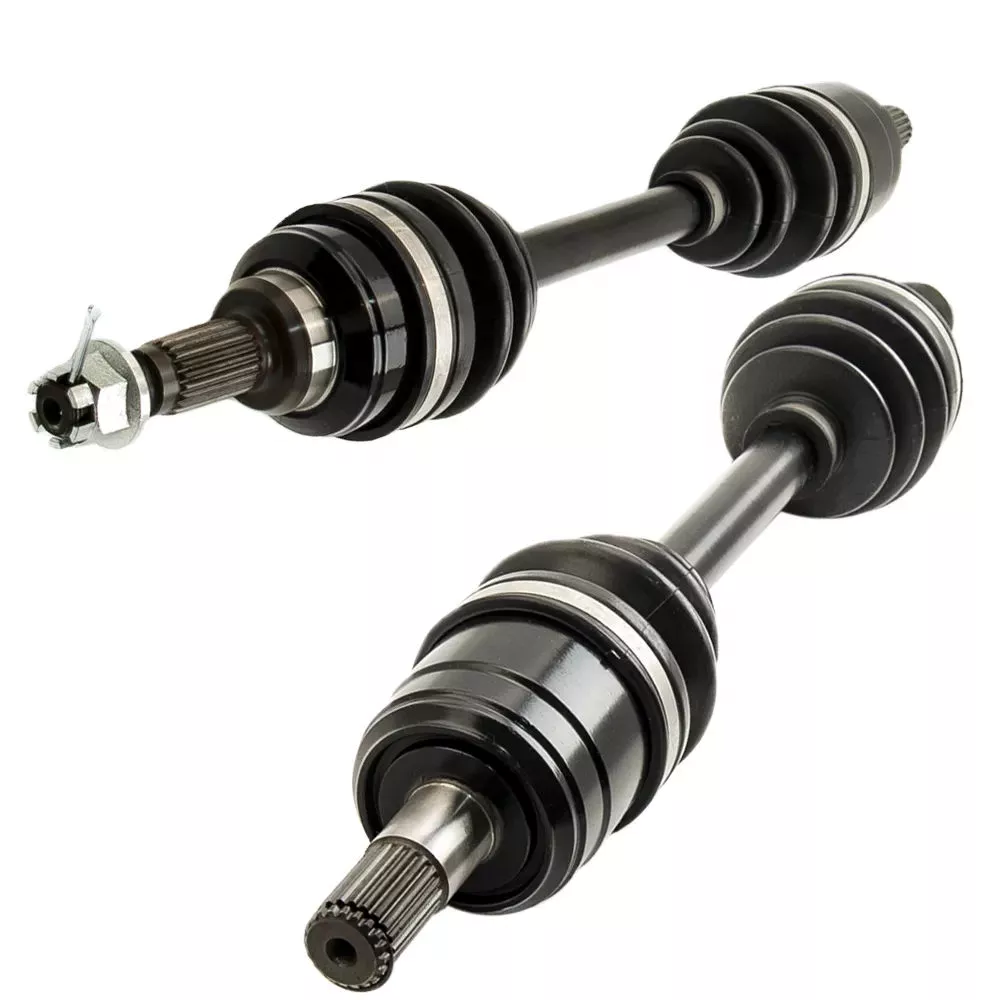
it has a U-shaped connector
The drive shaft has a U-joint that transfers rotational energy from the engine to the axle. Defective gimbal joints can cause vibrations when the vehicle is in motion. This vibration is often mistaken for a wheel balance problem. Wheel balance problems can cause the vehicle to vibrate while driving, while a U-joint failure can cause the vehicle to vibrate when decelerating and accelerating, and stop when the vehicle is stopped.
The drive shaft is connected to the transmission and differential using a U-joint. It allows for small changes in position between the 2 components. This prevents the differential and transmission from remaining perfectly aligned. The U-joint also allows the drive shaft to be connected unconstrained, allowing the vehicle to move. Its main purpose is to transmit electricity. Of all types of elastic couplings, U-joints are the oldest.
Your vehicle’s U-joints should be inspected at least twice a year, and the joints should be greased. When checking the U-joint, you should hear a dull sound when changing gears. A clicking sound indicates insufficient grease in the bearing. If you hear or feel vibrations when shifting gears, you may need to service the bearings to prolong their life.
it has a slide-in tube
The telescopic design is a modern alternative to traditional driveshaft designs. This innovative design is based on an unconventional design philosophy that combines advances in material science and manufacturing processes. Therefore, they are more efficient and lighter than conventional designs. Slide-in tubes are a simple and efficient design solution for any vehicle application. Here are some of its benefits. Read on to learn why this type of shaft is ideal for many applications.
The telescopic drive shaft is an important part of the traditional automobile transmission system. These driveshafts allow linear motion of the 2 components, transmitting torque and rotation throughout the vehicle’s driveline. They also absorb energy if the vehicle collides. Often referred to as foldable driveshafts, their popularity is directly dependent on the evolution of the automotive industry.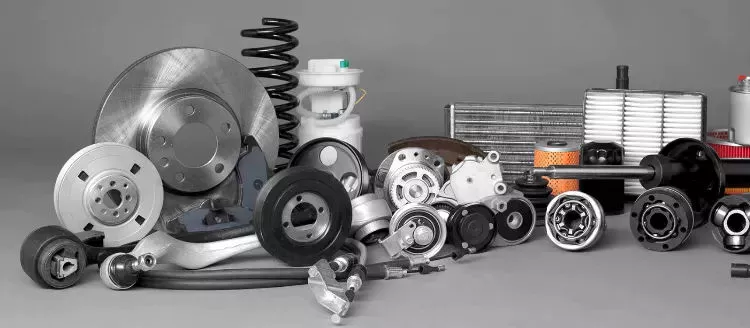
It uses a bearing press to replace worn or damaged U-joints
A bearing press is a device that uses a rotary press mechanism to install or remove worn or damaged U-joints from a drive shaft. With this tool, you can replace worn or damaged U-joints in your car with relative ease. The first step involves placing the drive shaft in the vise. Then, use the 11/16″ socket to press the other cup in far enough to install the clips. If the cups don’t fit, you can use a bearing press to remove them and repeat the process. After removing the U-joint, use a grease nipple Make sure the new grease nipple is installed correctly.
Worn or damaged U-joints are a major source of driveshaft failure. If 1 of them were damaged or damaged, the entire driveshaft could dislocate and the car would lose power. Unless you have a professional mechanic doing the repairs, you will have to replace the entire driveshaft. Fortunately, there are many ways to do this yourself.
If any of these warning signs appear on your vehicle, you should consider replacing the damaged or worn U-joint. Common symptoms of damaged U-joints include rattling or periodic squeaking when moving, rattling when shifting, wobbling when turning, or rusted oil seals. If you notice any of these symptoms, take your vehicle to a qualified mechanic for a full inspection. Neglecting to replace a worn or damaged u-joint on the driveshaft can result in expensive and dangerous repairs and can cause significant damage to your vehicle.


China Professional Hydraulic Ladder 3axles Heavy Duty 60ton 80tons Low Bed Semi Trailers Lowbed Trailer Lowboy Axle for Sale in Africa with high quality
Product Description
Hydraulic Ladder 3Axles Heavy Duty 60Ton 80Tons Low Bed Semi Trailers Lowbed Trailer Lowboy Axle For Sale In Africa
There are plate types, concave beam type and exposed tire type structure, its frame for the ladder, longitudinal beam section for the i-shape, with high stiffness, high strength characteristics. The main plane of the frame and cargo platform is low, which ensures the smoothness of transportation.
Other Color
Product Details
Specification
Export Record
Packing & Delivery
Shipping method
1.Container Shipping
2.Ro-Ro Shipping
3.Bulk Cargo Shipping
Company Profile
A leading manufacturer of semi trailer , main products including dump trailer, tanker trailer, and flatbed semi-trailer, low-bed semi-trailer, skeleton semi-trailer. As a professional manufacturer of semi trailer of innovative enterprises, the company has had more than 12 years products experiences, and more than 3 years manufacturer experiences.We always for the innovation of the products research and development, quality assurance.
Our Workshop
Our Office
Certification
Exhibitions
FAQ
1. who are we?
We are based in ZheJiang , China, start from 2571,sell to Africa(20.00%),Mid East(13.00%),South America(12.00%),Southeast Asia(10.00%),Domestic Market(10.00%),North America(5.00%),Eastern Europe(5.00%),Oceania(5.00%),Eastern Asia(5.00%),Central America(5.00%),South Asia(5.00%),Western Europe(2.00%),Southern Europe(2.00%),Northern Europe(00.00%). There are total about 11-50 people in our office.
2. how can we guarantee quality?
Always a pre-production sample before mass production;
Always final Inspection before shipment;
3.what can you buy from us?
Semi Trailer,Dump truck,Tractor,Engineering vehicle,Trailer Parts
4. why should you buy from us not from other suppliers?
ZheJiang Luen Auto Co., Ltd. is a professional supplier of semi-trailers committed to improving quality and insisting on the principle of “innovation, quality, professionalism and mutual benefit” to achieve the goal of satisfying customers. Strong technica
5. what services can we provide?
Accepted Delivery Terms: FOB,CFR,CIF,EXW;
Accepted Payment Currency:USD,HKD,CNY;
Accepted Payment Type: T/T,L/C,D/P D/A,Western Union;
Language Spoken:English,Chinese,Spanish,Japanese,Portuguese,German,Arabic,French,Russian,Korean,Italianes.
Contact Us
Screw Shaft Types and Uses
Various uses for the screw shaft are numerous. Its major diameter is the most significant characteristic, while other aspects include material and function are important. Let us explore these topics in more detail. There are many different types of screw shafts, which include bronze, brass, titanium, and stainless steel. Read on to learn about the most common types. Listed below are some of the most common uses for a screw shaft. These include: C-clamps, screw jacks, vises, and more.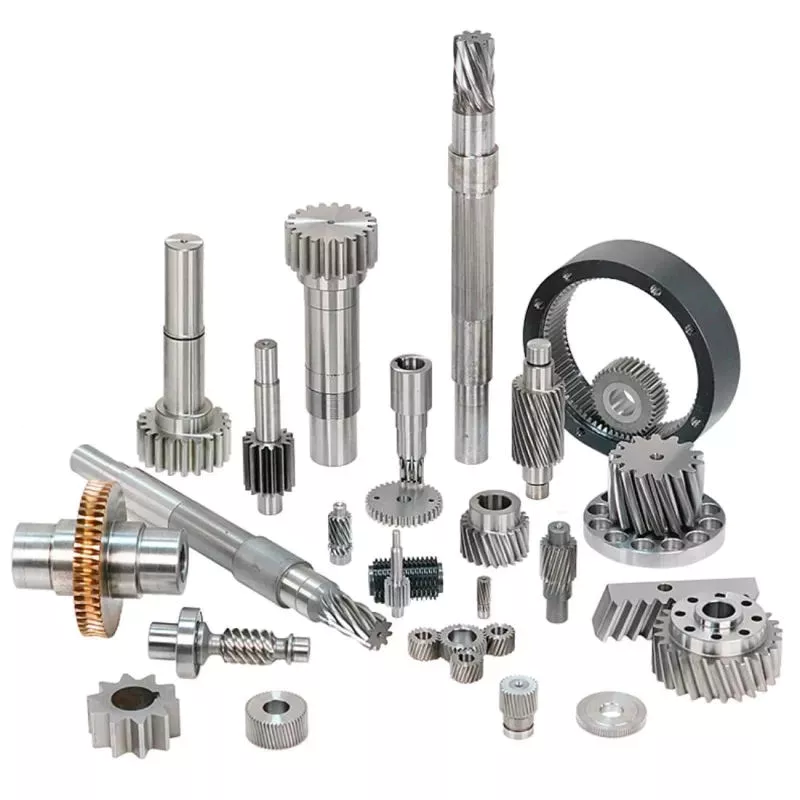
Major diameter of a screw shaft
A screw’s major diameter is measured in fractions of an inch. This measurement is commonly found on the screw label. A screw with a major diameter less than 1/4″ is labeled #0 to #14; those with a larger diameter are labeled fractions of an inch in a corresponding decimal scale. The length of a screw, also known as the shaft, is another measure used for the screw.
The major diameter of a screw shaft is the greater of its 2 outer diameters. When determining the major diameter of a screw, use a caliper, micrometer, or steel rule to make an accurate measurement. Generally, the first number in the thread designation refers to the major diameter. Therefore, if a screw has a thread of 1/2-10 Acme, the major diameter of the thread is.500 inches. The major diameter of the screw shaft will be smaller or larger than the original diameter, so it’s a good idea to measure the section of the screw that’s least used.
Another important measurement is the pitch. This measures the distance between 1 thread’s tip and the next thread’s corresponding point. Pitch is an important measurement because it refers to the distance a screw will advance in 1 turn. While lead and pitch are 2 separate concepts, they are often used interchangeably. As such, it’s important to know how to use them properly. This will make it easier to understand how to select the correct screw.
There are 3 different types of threads. The UTS and ISO metric threads are similar, but their common values for Dmaj and Pmaj are different. A screw’s major diameter is the largest diameter, while the minor diameter is the lowest. A nut’s major diameter, or the minor diameter, is also called the nut’s inside diameter. A bolt’s major diameter and minor diameter are measured with go/no-go gauges or by using an optical comparator.
The British Association and American Society of Mechanical Engineers standardized screw threads in the 1840s. A standard named “British Standard Whitworth” became a common standard for screw threads in the United States through the 1860s. In 1864, William Sellers proposed a new standard that simplified the Whitworth thread and had a 55 degree angle at the tip. Both standards were widely accepted. The major diameter of a screw shaft can vary from 1 manufacturer to another, so it’s important to know what size screw you’re looking for.
In addition to the thread angle, a screw’s major diameter determines the features it has and how it should be used. A screw’s point, or “thread”, is usually spiky and used to drill into an object. A flat tipped screw, on the other hand, is flat and requires a pre-drilled hole for installation. Finally, the diameter of a screw bolt is determined by the major and minor diameters.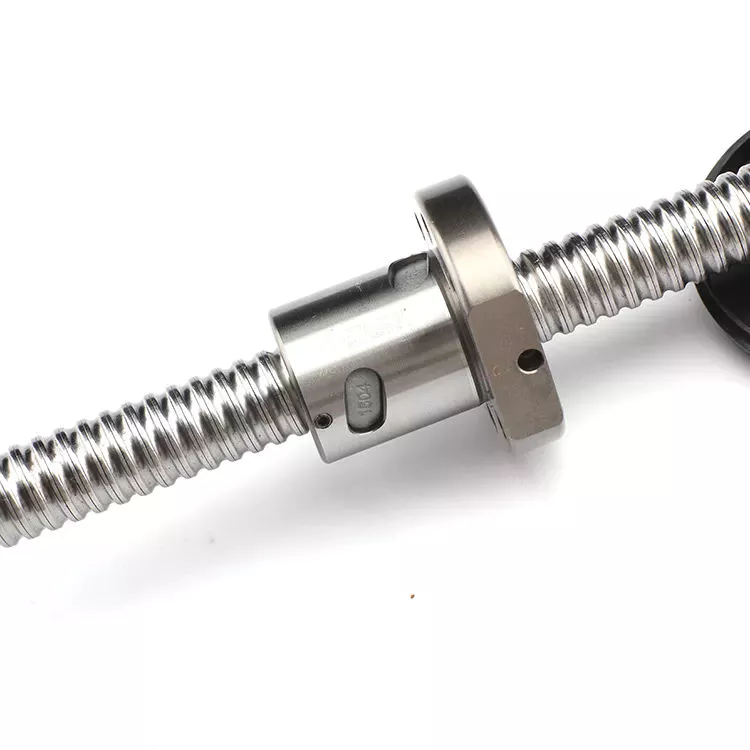
Material of a screw shaft
A screw shaft is a piece of machine equipment used to move raw materials. The screw shaft typically comprises a raw material w. For a particular screw to function correctly, the raw material must be sized properly. In general, screw shafts should have an axial-direction length L equal to the moving amount k per 1/2 rotation of the screw. The screw shaft must also have a proper contact angle ph1 in order to prevent raw material from penetrating the screw shaft.
The material used for the shaft depends on its application. A screw with a ball bearing will work better with a steel shaft than 1 made of aluminum. Aluminum screw shafts are the most commonly used for this application. Other materials include titanium. Some manufacturers also prefer stainless steel. However, if you want a screw with a more modern appearance, a titanium shaft is the way to go. In addition to that, screws with a chromium finish have better wear resistance.
The material of a screw shaft is important for a variety of applications. It needs to have high precision threads and ridges to perform its function. Manufacturers often use high-precision CNC machines and lathes to create screw shafts. Different screw shafts can have varying sizes and shapes, and each 1 will have different applications. Listed below are the different materials used for screw shafts. If you’re looking for a high-quality screw shaft, you should shop around.
A lead screw has an inverse relationship between contact surface pressure and sliding velocity. For heavier axial loads, a reduced rotation speed is needed. This curve will vary depending on the material used for the screw shaft and its lubrication conditions. Another important factor is end fixity. The material of a screw shaft can be either fixed or free, so make sure to consider this factor when choosing the material of your screw. The latter can also influence the critical speed and rigidity of the screw.
A screw shaft’s major diameter is the distance between the outer edge of the thread and the inner smooth part. Screw shafts are typically between 2 and 16 millimeters in diameter. They feature a cylindrical shape, a pointy tip, and a wider head and drive than the former. There are 2 basic types of screw heads: threaded and non-threaded. These have different properties and purposes.
Lead screws are a cost-effective alternative to ball screws, and are used for low power and light to medium-duty applications. They offer some advantages, but are not recommended for continuous power transmission. But lead screws are often quieter and smaller, which make them useful for many applications. Besides, they are often used in a kinematic pair with a nut object. They are also used to position objects.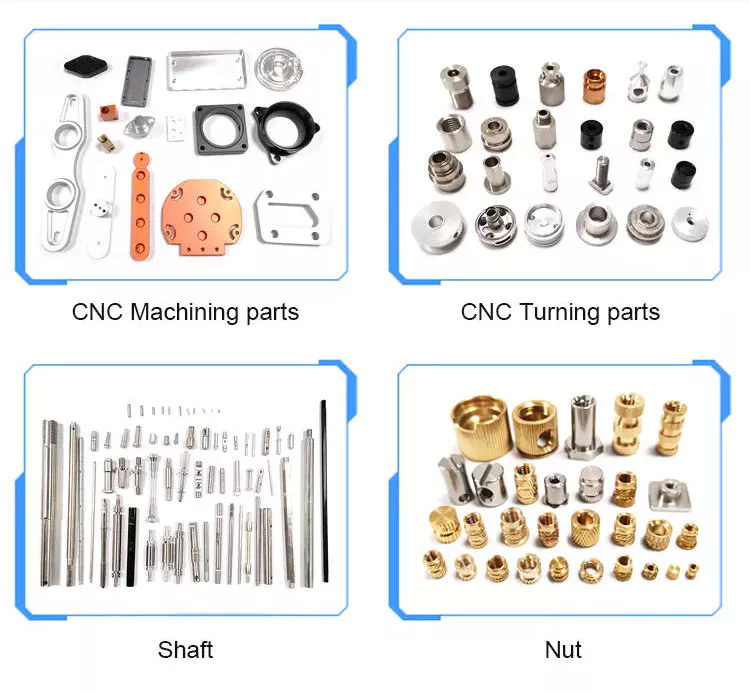
Function of a screw shaft
When choosing a screw for a linear motion system, there are many factors that should be considered, such as the position of the actuator and the screw and nut selection. Other considerations include the overall length of travel, the fastest move profile, the duty cycle, and the repeatability of the system. As a result, screw technology plays a critical role in the overall performance of a system. Here are the key factors to consider when choosing a screw.
Screws are designed with an external threading that digs out material from a surface or object. Not all screw shafts have complete threading, however. These are known as partially threaded screws. Fully threaded screws feature complete external threading on the shaft and a pointed tip. In addition to their use as fasteners, they can be used to secure and tighten many different types of objects and appliances.
Another factor to consider is axial force. The higher the force, the bigger the screw needs to be. Moreover, screws are similar to columns that are subject to both tension and compression loads. During the compression load, bowing or deflection is not desirable, so the integrity of the screw is important. So, consider the design considerations of your screw shaft and choose accordingly. You can also increase the torque by using different shaft sizes.
Shaft collars are also an important consideration. These are used to secure and position components on the shaft. They also act as stroke limiters and to retain sprocket hubs, bearings, and shaft protectors. They are available in several different styles. In addition to single and double split shaft collars, they can be threaded or set screw. To ensure that a screw collar will fit tightly to the shaft, the cap must not be overtightened.
Screws can be cylindrical or conical and vary in length and diameter. They feature a thread that mates with a complementary helix in the material being screwed into. A self-tapping screw will create a complementary helix during driving, creating a complementary helix that allows the screw to work with the material. A screw head is also an essential part of a screw, providing gripping power and compression to the screw.
A screw’s pitch and lead are also important parameters to consider. The pitch of the screw is the distance between the crests of the threads, which increases mechanical advantage. If the pitch is too small, vibrations will occur. If the pitch is too small, the screw may cause excessive wear and tear on the machine and void its intended purpose. The screw will be useless if it can’t be adjusted. And if it can’t fit a shaft with the required diameter, then it isn’t a good choice.
Despite being the most common type, there are various types of screws that differ in their functions. For example, a machine screw has a round head, while a truss head has a lower-profile dome. An oval-its point screw is a good choice for situations where the screw needs to be adjusted frequently. Another type is a soft nylon tip, which looks like a Half-dog point. It is used to grip textured or curved surfaces.


China Custom Trailer Axle Under Suspension Type Hydraulic Brake Drum Load 1.5 Tons Trailer Truck Bridge Towed Saloon Source Manufacturers near me shop
Product Description
Product Description
Detailed Specification:
7″ 9″ 10″ 11″ 12″ 12 1/4″ electric/hydraulic/mechanical brake assembly
for almost all kinds of light and medium-duty trailer usage.
Our Advantage
1>Our joint venture partners are American Famous axle company AXLETEK,we have make a cooperation for 6 years.So we can supply stable and high quality brakes.
2>We have Researching and Development Department in Detroit,so we are also capable of developing products according drawing or samples to meet the special requirement of our customes.
3>We can supply 7 inch,10 inch,12 inch and 12.25 inch brakes for the moment.
4>All the parts for the brakes are produced by ourself,so we can supply our customer high quality products with resonable price.
5>We can also supply axle assemly.
Specification
-
Some product models
| Model No. | Brake type | Wideness | Thickness | Voltage | Cylinder | Max. Load |
| B07E(AZ008) | Electric Brake | 7 | 1 1/4 | 12 | 2,000 lb | |
| B10E(AZ004) | Electric Brake | 10 | 2 1/4 | 12 | 3,500 lb | |
| B11E(AZ017) | Electric Brake | 11 | 2 | 12 | 6,000 lb | |
| B12E(AZ003) | Electric Brake | 12 | 2 | 12 | 7,000 lb | |
| B35E(AZ056) | Electric Brake | 10 | 1 3/4 | 12 | 3,500 lb | |
| B44E(AZ063) | Electric Brake | 10 | 2 1/4 | 12 | 4,400 lb | |
| B10EA(AZ571) | Electric Brake self-adjusting | 10 | 2 1/4 | 12 | 3,500 lb | |
| B11EA(AZ064) | Electric Brake self-adjusting | 11 | 2 | 12 | 6,000 lb | |
| B12EA(AZ571) | Electric Brake self-adjusting | 12 | 2 | 12 | 7,000 lb | |
| B35EA(AZ060) | Electric Brake self-adjusting | 10 | 1 3/4 | 12 | 3,500 lb | |
| B44EA(AZ057) | Electric Brake self-adjusting | 10 | 2 1/4 | 12 | 4,400 lb | |
| B10EAP(AZ037) | Electric Brake self-adjusting w/parking | 10 | 2 1/4 | 12 | 3,500 lb | |
| B12EAP(AZ036) | Electric Brake self-adjusting w/parking | 12 | 2 | 12 | 7,000 lb | |
| B07EP(AZ034) | Electric Brake with Parking lever | 7 | 1 1/4 | 12 | 2,000 lb | |
| B10EP(AZ013) | Electric Brake with Parking lever | 10 | 2 1/4 | 12 | 3,500 lb | |
| B12EP(AZ011) | Electric Brake with Parking lever | 12 | 2 | 12 | 7,000 lb | |
| B35EP(AZ061) | Electric Brake with Parking lever | 10 | 1 3/4 | 12 | 3,500 lb | |
| B44EP(AZ062) | Electric Brake with Parking lever | 10 | 2 1/4 | 12 | 4,400 lb | |
| B09M(AZ038) | Mechannical Brake | 9 | 1 3/4 | 3,000 lb | ||
| B09H(AZ031) | Hydraulic Brake | 9 | 1 3/4 | Duo-servo | 3,000 lb | |
| B10H(AZ007) | Hydraulic Brake | 10 | 2 1/4 | Uni-servo | 3,500 lb | |
| B12H(AZ006) | Hydraulic Brake | 12 | 2 | Uni-servo | 7,000 lb | |
| B10HB(AZ012) | Hydraulic Brake free-backing | 10 | 2 1/4 | Uni-servo | 3,500 lb | |
| B12HB(AZ571) | Hydraulic Brake free-backing | 12 | 2 | Uni-servo | 7,000 lb | |
| B10HBP(AZ019) | Hydraulic Brake free-backing w/parking | 10 | 2 1/4 | Uni-servo | 3,500 lb | |
| B12HBP(AZ018) | Hydraulic Brake free-backing w/parking | 12 | 2 | Uni-servo | 7,000 lb | |
| B10HP(AZ026) | Hydraulic Brake with Parking lever | 10 | 2 1/4 | Uni-servo | 3,500 lb | |
| B12HP(AZ571) | Hydraulic Brake with Parking lever | 12 | 2 | Uni-servo | 7,000 lb | |
| B1208E(AZ001a) | Heavy duty Electric Brake | 12 1/4 | 3 3/8 | 12 | 8,000 lb | |
| B1210E(AZ001b) | Heavy duty Electric Brake | 12 1/4 | 3 3/8 | 12 | 10,000 lb | |
| B1212E(AZ002) | Heavy duty Electric Brake | 12 1/4 | 5 | 12 | 12,000 lb | |
| B1208EP(AZ035) | Heavy duty Electric Brake w/Parking | 12 1/4 | 3 3/8 | 12 | 8,000 lb | |
| B1210EP(AZ001c) | Heavy duty Electric Brake w/Parking | 12 1/4 | 3 3/8 | 12 | 10,000 lb | |
| B1210H(AZ571) | Heavy duty Hydraulic Brake | 12 1/4 | 3 3/8 | Duo-servo | 10,000 lb | |
| …to be continued. More trailer chassis parts-axle,hub,drum,caliper… are available too | ||||||
Packaging & Shipping
Generally, in neutral white boxes and brown cartons or as ur requirements.
All our products would be offerd to you only after they passed a series of serous tests. We offer them to you with an easy heart because we know you will be satisfied and safe with our product.
Company Profile
Established in 2006, HangZhou Airui Brake System Co., LTD is a Sino-American joint venture. The American AXLE TEKNOLOGY LLC is a famous AXLE company, specializing in the design, development and manufacture of AXLE and its parts, and has rich experience in the development of brakes, drums, AXLE and other trailer parts. One of the largest bridge and spare parts suppliers in Europe.
The company has passed the national CCC certification, ISO9001, TS16949 quality system certification, North American Vehicle parts AMECA certification, Canadian Standards Association CSA certification, ECE certification, technology has reached the world’s advanced level, and obtained a number of technical patents, has been widely recognized by customers. Company factory area of 65,000 square meters, more than 500 employees, including more than 30 professional technical research and development personnel, equipped with the world’s leading laboratory, specializing in trailer, rv bridge, brake, brake drum, spring suspension, connector, casters and related parts production, development and sales in one.
Products are mainly exported to the United States, Canada, Australia and other countries and regions. Core products, electromagnetic brake, axle, electromagnet, and other wheel end trailer parts, annual output of 2 million sets, accounting for more than 90% of the domestic export of similar products market share, North America 40-50% market share.
FAQ
1. who are we?
We are based in ZheJiang , China, start from 2006,sell to North America(67.00%),Oceania(20.00%),Domestic Market(6.00%),South America,Eastern Europe,Southeast Asia,Africa,Eastern Asia,Western Europe,Central America. There are total about 301-500 people in our office.
2. how can we guarantee quality?
Always a pre-production sample before mass production;
Always final Inspection before shipment;
3.what can you buy from us?
Brake Assembly and Parts,Axle Assembly and Parts,Brake Pad,Brake Lining
4. why should you buy from us not from other suppliers?
1> be good at the formulation explore and develop,development team rank top 3 in China
2> huge sales department in America
3>with 8 years manufacture experience
4>300 acers factory
5>ISO/TS16949 and CSA certification
6>products sales over the world
5. what services can we provide?
Accepted Delivery Terms: FOB,CFR,CIF,EXW;
Accepted Payment Currency:USD,JPY;
Accepted Payment Type: T/T,L/C,PayPal;
Language Spoken:English,Chinese,Spanish,Japanese,Portuguese,German,Arabic,French,Russian,Korean,Hindi,Italian
How to Choose the Right Worm Shaft
You might be curious to know how to choose the right Worm Shaft. In this article, you will learn about worm modules with the same pitch diameter, Double-thread worm gears, and Self-locking worm drive. Once you have chosen the proper Worm Shaft, you will find it easier to use the equipment in your home. There are many advantages to selecting the right Worm Shaft. Read on to learn more.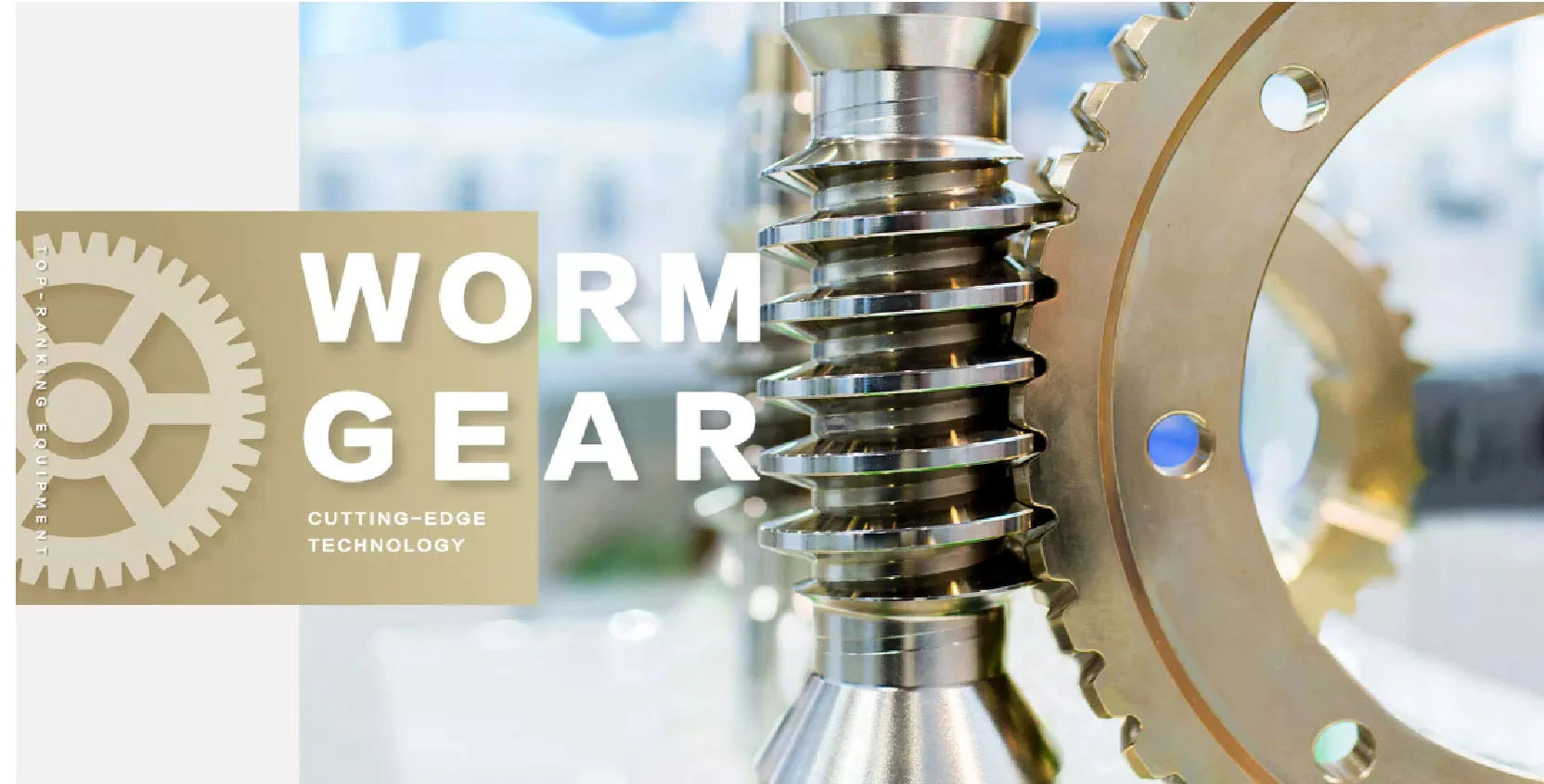
Concave shape
The concave shape of a worm’s shaft is an important characteristic for the design of a worm gearing. Worm gearings can be found in a wide range of shapes, and the basic profile parameters are available in professional and firm literature. These parameters are used in geometry calculations, and a selection of the right worm gearing for a particular application can be based on these requirements.
The thread profile of a worm is defined by the tangent to the axis of its main cylinder. The teeth are shaped in a straight line with a slightly concave shape along the sides. It resembles a helical gear, and the profile of the worm itself is straight. This type of gearing is often used when the number of teeth is greater than a certain limit.
The geometry of a worm gear depends on the type and manufacturer. In the earliest days, worms were made similar to simple screw threads, and could be chased on a lathe. During this time, the worm was often made with straight-sided tools to produce threads in the acme plane. Later, grinding techniques improved the thread finish and reduced distortions resulting from hardening.
When a worm gearing has multiple teeth, the pitch angle is a key parameter. A greater pitch angle increases efficiency. If you want to increase the pitch angle without increasing the number of teeth, you can replace a worm pair with a different number of thread starts. The helix angle must increase while the center distance remains constant. A higher pitch angle, however, is almost never used for power transmissions.
The minimum number of gear teeth depends on the angle of pressure at zero gearing correction. The diameter of the worm is d1, and is based on a known module value, mx or mn. Generally, larger values of m are assigned to larger modules. And a smaller number of teeth is called a low pitch angle. In case of a low pitch angle, spiral gearing is used. The pitch angle of the worm gear is smaller than 10 degrees.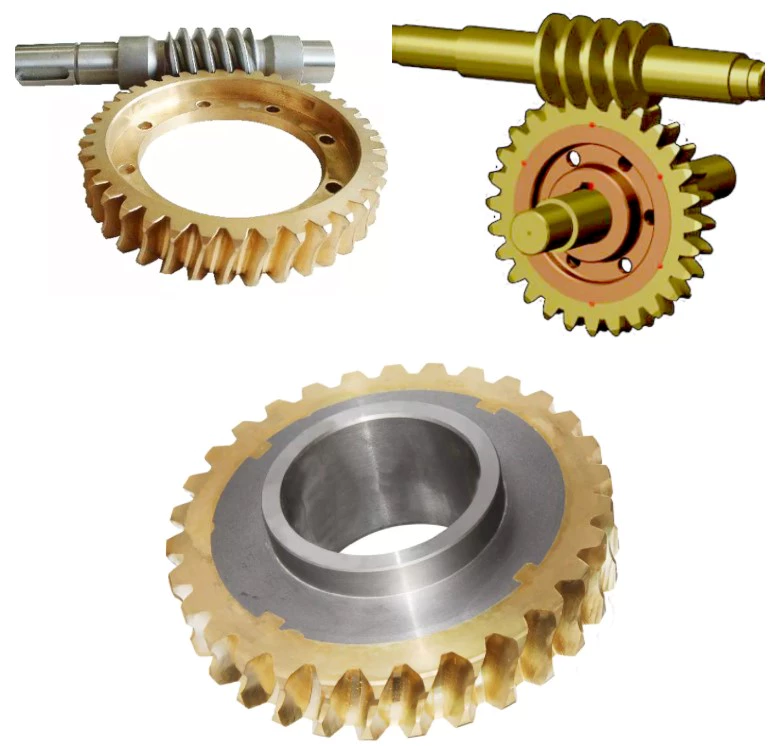
Multiple-thread worms
Multi-thread worms can be divided into sets of one, two, or 4 threads. The ratio is determined by the number of threads on each set and the number of teeth on the apparatus. The most common worm thread counts are 1,2,4, and 6. To find out how many threads you have, count the start and end of each thread and divide by two. Using this method, you will get the correct thread count every time.
The tangent plane of a worm’s pitch profile changes as the worm moves lengthwise along the thread. The lead angle is greatest at the throat, and decreases on both sides. The curvature radius r” varies proportionally with the worm’s radius, or pitch angle at the considered point. Hence, the worm leads angle, r, is increased with decreased inclination and decreases with increasing inclination.
Multi-thread worms are characterized by a constant leverage between the gear surface and the worm threads. The ratio of worm-tooth surfaces to the worm’s length varies, which enables the wormgear to be adjusted in the same direction. To optimize the gear contact between the worm and gear, the tangent relationship between the 2 surfaces is optimal.
The efficiency of worm gear drives is largely dependent on the helix angle of the worm. Multiple thread worms can improve the efficiency of the worm gear drive by as much as 25 to 50% compared to single-thread worms. Worm gears are made of bronze, which reduces friction and heat on the worm’s teeth. A specialized machine can cut the worm gears for maximum efficiency.
Double-thread worm gears
In many different applications, worm gears are used to drive a worm wheel. These gears are unique in that the worm cannot be reversed by the power applied to the worm wheel. Because of their self-locking properties, they can be used to prevent reversing motion, although this is not a dependable function. Applications for worm gears include hoisting equipment, elevators, chain blocks, fishing reels, and automotive power steering. Because of their compact size, these gears are often used in applications with limited space.
Worm sets typically exhibit more wear than other types of gears, and this means that they require more limited contact patterns in new parts. Worm wheel teeth are concave, making it difficult to measure tooth thickness with pins, balls, and gear tooth calipers. To measure tooth thickness, however, you can measure backlash, a measurement of the spacing between teeth in a gear. Backlash can vary from 1 worm gear to another, so it is important to check the backlash at several points. If the backlash is different in 2 places, this indicates that the teeth may have different spacing.
Single-thread worm gears provide high speed reduction but lower efficiency. A multi-thread worm gear can provide high efficiency and high speed, but this comes with a trade-off in terms of horsepower. However, there are many other applications for worm gears. In addition to heavy-duty applications, they are often used in light-duty gearboxes for a variety of functions. When used in conjunction with double-thread worms, they allow for a substantial speed reduction in 1 step.
Stainless-steel worm gears can be used in damp environments. The worm gear is not susceptible to rust and is ideal for wet and damp environments. The worm wheel’s smooth surfaces make cleaning them easy. However, they do require lubricants. The most common lubricant for worm gears is mineral oil. This lubricant is designed to protect the worm drive.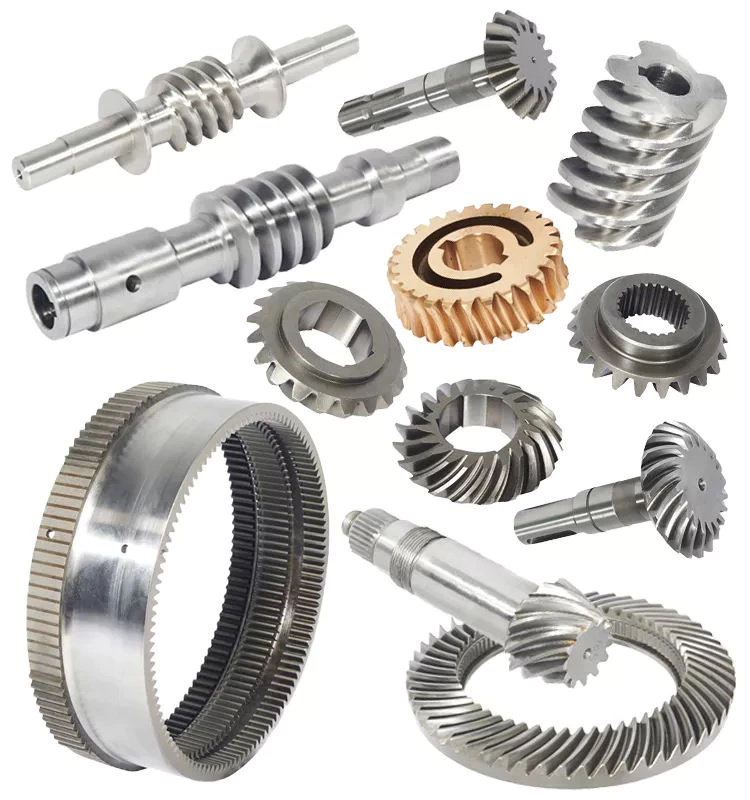
Self-locking worm drive
A self-locking worm drive prevents the platform from moving backward when the motor stops. A dynamic self-locking worm drive is also possible but does not include a holding brake. This type of self-locking worm drive is not susceptible to vibrations, but may rattle if released. In addition, it may require an additional brake to keep the platform from moving. A positive brake may be necessary for safety.
A self-locking worm drive does not allow for the interchangeability of the driven and driving gears. This is unlike spur gear trains that allow both to interchange positions. In a self-locking worm drive, the driving gear is always engaged and the driven gear remains stationary. The drive mechanism locks automatically when the worm is operated in the wrong manner. Several sources of information on self-locking worm gears include the Machinery’s Handbook.
A self-locking worm drive is not difficult to build and has a great mechanical advantage. In fact, the output of a self-locking worm drive cannot be backdriven by the input shaft. DIYers can build a self-locking worm drive by modifying threaded rods and off-the-shelf gears. However, it is easier to make a ratchet and pawl mechanism, and is significantly less expensive. However, it is important to understand that you can only drive 1 worm at a time.
Another advantage of a self-locking worm drive is the fact that it is not possible to interchange the input and output shafts. This is a major benefit of using such a mechanism, as you can achieve high gear reduction without increasing the size of the gear box. If you’re thinking about buying a self-locking worm gear for a specific application, consider the following tips to make the right choice.
An enveloping worm gear set is best for applications requiring high accuracy and efficiency, and minimum backlash. Its teeth are shaped differently, and the worm’s threads are modified to increase surface contact. They are more expensive to manufacture than their single-start counterparts, but this type is best for applications where accuracy is crucial. The worm drive is also a great option for heavy trucks because of their large size and high-torque capacity.


China Good quality Heavy Duty 2 Axle 50 Ton U Shape 40 Cubic Dump Tipper Semi Trailer Truck Hydraulic Lifting Axles near me shop
Product Description
Heavy duty 2 axle 50 ton U shape 40 cubic Dump Tipper Semi Trailer Truck Hydraulic lifting axles
| Trailer Model | 3 Axle 28CBM U Shape Tipper Semi Trailer |
| Overall dimension(mm) | 9300*2500*3400 |
| Inner Dimension(mm) | 25 Cubic Meters |
| Loading capacity | 30-80 Tons |
| Axle brand and number | 13T HJ 3units |
| Kingpin | 50# oJOST |
| Steel Spring | leaf spring suspension |
| Main beam | The height of the beam is 500 mm,upper plate is14mm,down plate is 16mm,middle plate is 8mm. |
| Tyre and quantity | 12R22.5 tubeless tires, 12 pieces |
| Landing gear | JOST, double speed operation |
| Thickness | bottom:8mm, side:4mm |
| Brake system | WABCO Braking system |
| Electrical system | 24V Electrical system With LED Light |
| Tool box | 1 Set |
| Spare tire carrier | 1 Set |
| Painting | Optional |
| Packing | Packing |
| Function | Transport Sand and CZPT Transport |
QUESTIONS:
1. What’s the deilvery period?
Answer: 45 days after deposite
2. What’s the shipping way?
Answer: by roro ship or bulk ship.
3. What’s the MOQ?
Answer: even 1 pcs is no problem.
4. How could I check the cargo without going there?
Answer: after production, there will be 1 chassis number, that is single number, we will also offer video checking service.
How to Calculate the Diameter of a Worm Gear
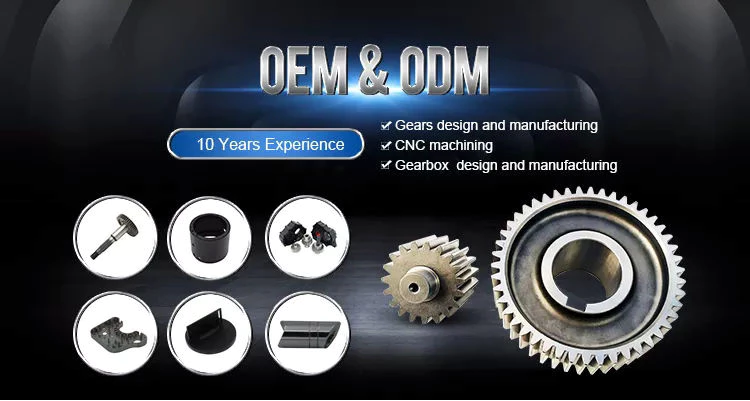
In this article, we will discuss the characteristics of the Duplex, Single-throated, and Undercut worm gears and the analysis of worm shaft deflection. Besides that, we will explore how the diameter of a worm gear is calculated. If you have any doubt about the function of a worm gear, you can refer to the table below. Also, keep in mind that a worm gear has several important parameters which determine its working.
Duplex worm gear
A duplex worm gear set is distinguished by its ability to maintain precise angles and high gear ratios. The backlash of the gearing can be readjusted several times. The axial position of the worm shaft can be determined by adjusting screws on the housing cover. This feature allows for low backlash engagement of the worm tooth pitch with the worm gear. This feature is especially beneficial when backlash is a critical factor when selecting gears.
The standard worm gear shaft requires less lubrication than its dual counterpart. Worm gears are difficult to lubricate because they are sliding rather than rotating. They also have fewer moving parts and fewer points of failure. The disadvantage of a worm gear is that you cannot reverse the direction of power due to friction between the worm and the wheel. Because of this, they are best used in machines that operate at low speeds.
Worm wheels have teeth that form a helix. This helix produces axial thrust forces, depending on the hand of the helix and the direction of rotation. To handle these forces, the worms should be mounted securely using dowel pins, step shafts, and dowel pins. To prevent the worm from shifting, the worm wheel axis must be aligned with the center of the worm wheel’s face width.
The backlash of the CZPT duplex worm gear is adjustable. By shifting the worm axially, the section of the worm with the desired tooth thickness is in contact with the wheel. As a result, the backlash is adjustable. Worm gears are an excellent choice for rotary tables, high-precision reversing applications, and ultra-low-backlash gearboxes. Axial shift backlash is a major advantage of duplex worm gears, and this feature translates into a simple and fast assembly process.
When choosing a gear set, the size and lubrication process will be crucial. If you’re not careful, you might end up with a damaged gear or 1 with improper backlash. Luckily, there are some simple ways to maintain the proper tooth contact and backlash of your worm gears, ensuring long-term reliability and performance. As with any gear set, proper lubrication will ensure your worm gears last for years to come.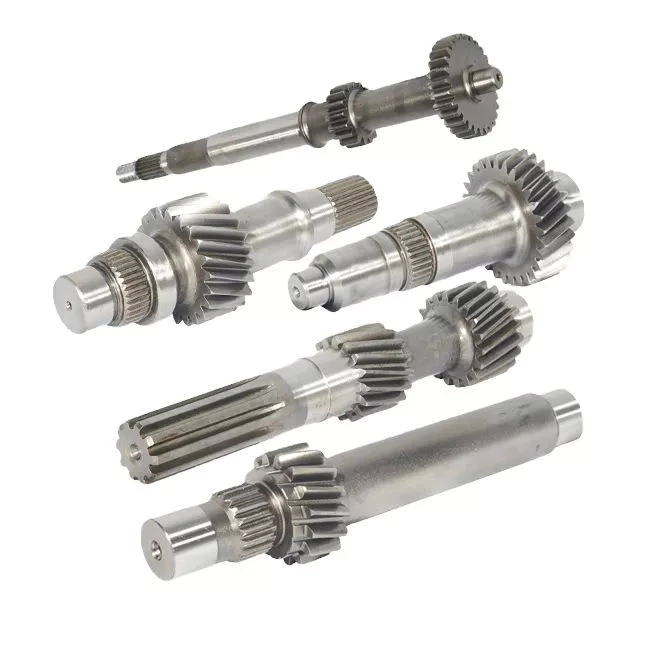
Single-throated worm gear
Worm gears mesh by sliding and rolling motions, but sliding contact dominates at high reduction ratios. Worm gears’ efficiency is limited by the friction and heat generated during sliding, so lubrication is necessary to maintain optimal efficiency. The worm and gear are usually made of dissimilar metals, such as phosphor-bronze or hardened steel. MC nylon, a synthetic engineering plastic, is often used for the shaft.
Worm gears are highly efficient in transmission of power and are adaptable to various types of machinery and devices. Their low output speed and high torque make them a popular choice for power transmission. A single-throated worm gear is easy to assemble and lock. A double-throated worm gear requires 2 shafts, 1 for each worm gear. Both styles are efficient in high-torque applications.
Worm gears are widely used in power transmission applications because of their low speed and compact design. A numerical model was developed to calculate the quasi-static load sharing between gears and mating surfaces. The influence coefficient method allows fast computing of the deformation of the gear surface and local contact of the mating surfaces. The resultant analysis shows that a single-throated worm gear can reduce the amount of energy required to drive an electric motor.
In addition to the wear caused by friction, a worm wheel can experience additional wear. Because the worm wheel is softer than the worm, most of the wear occurs on the wheel. In fact, the number of teeth on a worm wheel should not match its thread count. A single-throated worm gear shaft can increase the efficiency of a machine by as much as 35%. In addition, it can lower the cost of running.
A worm gear is used when the diametrical pitch of the worm wheel and worm gear are the same. If the diametrical pitch of both gears is the same, the 2 worms will mesh properly. In addition, the worm wheel and worm will be attached to each other with a set screw. This screw is inserted into the hub and then secured with a locknut.
Undercut worm gear
Undercut worm gears have a cylindrical shaft, and their teeth are shaped in an evolution-like pattern. Worms are made of a hardened cemented metal, 16MnCr5. The number of gear teeth is determined by the pressure angle at the zero gearing correction. The teeth are convex in normal and centre-line sections. The diameter of the worm is determined by the worm’s tangential profile, d1. Undercut worm gears are used when the number of teeth in the cylinder is large, and when the shaft is rigid enough to resist excessive load.
The center-line distance of the worm gears is the distance from the worm centre to the outer diameter. This distance affects the worm’s deflection and its safety. Enter a specific value for the bearing distance. Then, the software proposes a range of suitable solutions based on the number of teeth and the module. The table of solutions contains various options, and the selected variant is transferred to the main calculation.
A pressure-angle-angle-compensated worm can be manufactured using single-pointed lathe tools or end mills. The worm’s diameter and depth are influenced by the cutter used. In addition, the diameter of the grinding wheel determines the profile of the worm. If the worm is cut too deep, it will result in undercutting. Despite the undercutting risk, the design of worm gearing is flexible and allows considerable freedom.
The reduction ratio of a worm gear is massive. With only a little effort, the worm gear can significantly reduce speed and torque. In contrast, conventional gear sets need to make multiple reductions to get the same reduction level. Worm gears also have several disadvantages. Worm gears can’t reverse the direction of power because the friction between the worm and the wheel makes this impossible. The worm gear can’t reverse the direction of power, but the worm moves from 1 direction to another.
The process of undercutting is closely related to the profile of the worm. The worm’s profile will vary depending on the worm diameter, lead angle, and grinding wheel diameter. The worm’s profile will change if the generating process has removed material from the tooth base. A small undercut reduces tooth strength and reduces contact. For smaller gears, a minimum of 14-1/2degPA gears should be used.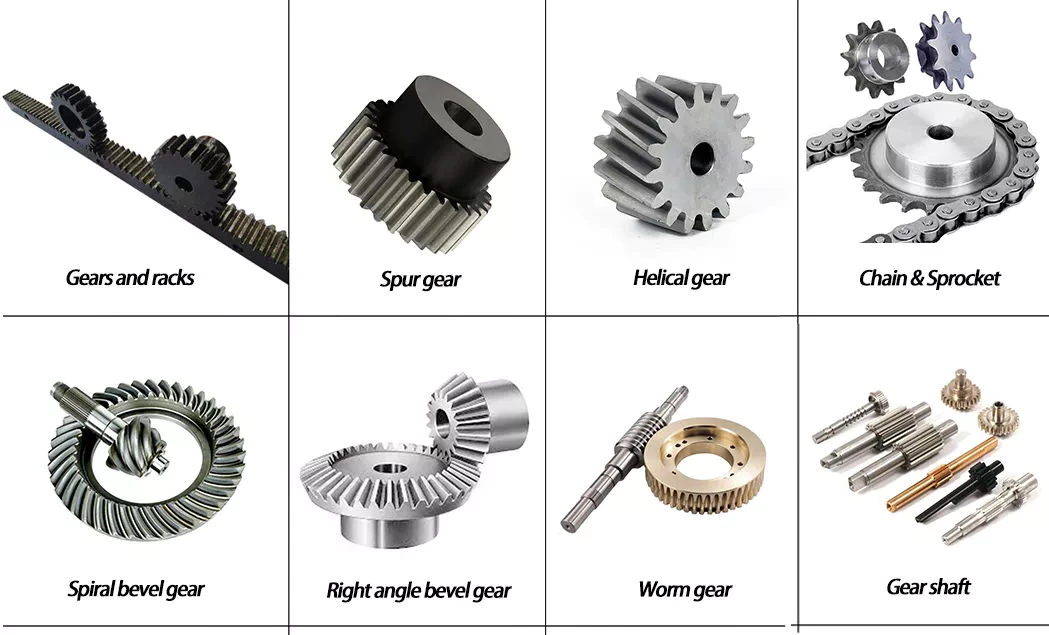
Analysis of worm shaft deflection
To analyze the worm shaft deflection, we first derived its maximum deflection value. The deflection is calculated using the Euler-Bernoulli method and Timoshenko shear deformation. Then, we calculated the moment of inertia and the area of the transverse section using CAD software. In our analysis, we used the results of the test to compare the resulting parameters with the theoretical ones.
We can use the resulting centre-line distance and worm gear tooth profiles to calculate the required worm deflection. Using these values, we can use the worm gear deflection analysis to ensure the correct bearing size and worm gear teeth. Once we have these values, we can transfer them to the main calculation. Then, we can calculate the worm deflection and its safety. Then, we enter the values into the appropriate tables, and the resulting solutions are automatically transferred into the main calculation. However, we have to keep in mind that the deflection value will not be considered safe if it is larger than the worm gear’s outer diameter.
We use a four-stage process for investigating worm shaft deflection. We first apply the finite element method to compute the deflection and compare the simulation results with the experimentally tested worm shafts. Finally, we perform parameter studies with 15 worm gear toothings without considering the shaft geometry. This step is the first of 4 stages of the investigation. Once we have calculated the deflection, we can use the simulation results to determine the parameters needed to optimize the design.
Using a calculation system to calculate worm shaft deflection, we can determine the efficiency of worm gears. There are several parameters to optimize gearing efficiency, including material and geometry, and lubricant. In addition, we can reduce the bearing losses, which are caused by bearing failures. We can also identify the supporting method for the worm shafts in the options menu. The theoretical section provides further information.


China high quality Superlink Side Dump Trailer 3+3 Axles with 2 Dolly Connect Double Towing Semi Hydraulic Tipper Trailer near me manufacturer
Product Description
PRODUCT DESCRIPTION
————————————-
| DOUBLE TIPPER SEMI TRAILER TIPPING WAYS MADE BY REQUEST |
||||||
| AXLE NO. | AXLE LOCATION | TIRE NO. | LENGTH | RATING CAPACITY | ||
| 1 | REAR | 4 | 4000-7500MM | 15TONS | ||
| 2 | 1+1 | 8 | 7500-12500MM | 40TONS | ||
| 3 | 1+2 | 12 | 12500-15000MM | 60TONS | ||
| 4 | 2+2 | 16 | 15000-18000MM | 80TONS | ||
| SUSPENSION | AMERICA TYPE MECHANICAL SUSPENSION | |||||
| WHEEL | 11:00 R20 | |||||
| TURNTABLE | DIAMETER IS 1100MM | |||||
| TRACTION HOOK | DN50 | |||||
| TRACTION BAR | LENGTH IS 1.4M | |||||
| DIMENSIONS(LXWXH) | 7500-18000×2500×1500MM | |||||
| STEEL SPRING | 10/10 PIECES PER AXLES | |||||
| TIRE: | ||||||
| THE MATERIAL OF MAIN BEAM |
THE HEIGHT OF THE BEAM IS420MM,UPPER PLATE IS 12MM*140,DOWN PLATE IS 12*140MM,MIDDLE PLATE IS 6MM(STRICTLY).MADE OF Q345 | |||||
| PLATFORM PLATE | 3MM CZPT PLATE | |||||
| BRAKE: | WABCO VALVE | |||||
| BRAKE | KEMI BRAND OF CHINA | |||||
| BRAKE CHAMBER | TWO DOUBLE AND TWO SINGLE CHAMBER( TKL BRAND ) | |||||
| ABS SYSTEM | WITH | |||||
| ELECTRICAL: | ||||||
| VOLTAGE | 24V | |||||
| RECEPTACLE | 7 WAYS(7 WIRE HARNESS) | |||||
| LIGHT COLOR: | (LED LIGHT) | |||||
| SIDE MARKER LAMP | ORANGE | |||||
| REAR LAMP | RED | |||||
| TURN SIGNAL LAMP | ORANGE | |||||
| MISCELLANEOUS: | ||||||
| PAINTING | CAN BE CHOOSE FREELY | |||||
| MARKING | ACCORDING TO THE REQUIREMENT OF THE BUYER | |||||
| SIDE GUARD | ACCORDING TO THE REQUIREMENT OF THE BUYER | |||||
| TOOLS BOX | ONE PIECES OR ACCORDING TO THE BUYER(1M LENGTH) | |||||
| WATER TANK | THE SIZE CAN BE CHOOSE FREELY. | |||||
PRODUCTION & DETAILS
———————————————
COLOR & AXLE QTY CAN BE MADE BY CLIENT NEED AFTER CONTACTING OUR SALES
RELATED PRODUCTS
———————————————
CASES FOR EXPORTING
———————————————
FAQ
———————————————
1. How To Buy From Us ?
– You Can Select The Desired Products From Our Online Shop,
A. Clicking Our Sales Manager To Confirm The Model;
B. Telling Our Sales Manager Special Request If You Have;
C. Confirmed The Quantity And Price On The Desired Model;
D. Confirming The Terms Of Delivery (Fob/Cfr/Cif/Daf.. Etc By Mutual Agreement);
E. Our Sales Manager Can Issue You The Commercial Invoice On Agreement;
F. 1st Down Payment 30% On Total Invoice Value Should To Paid Us By Tt/Online Upon The Invoice Issuing.
G. Our Factory Will Finish The Production According To The Agreed Production Time.
H. Final Payment Will Be Paid After We Showing All Production As Per Clients’ Need.
I. Shipment Arrange And Final Document Arrange To Customer.
2. What’s The Guarantee Period On Our Products ?
– All Products We Export Has 1 Year Guarantee Period, And For The Beam Is Lifetime Promise. As Exporting Experience For Years, All Products From Our Factory Can Meet The Exporting Country’s Standards On Vehicles, All Vehicles Will Be
Built Upon The Related Countries’ Road Condition, And Our Sales Manager Will Provide Customer The Best Suggestions Before Placing The Order. If Some Easy Weary Small Parts, We Can Offer Free In 6 Months.
3. If Customized Service Provided ?
– Yes, Please Contact Our Sales Manger, We Can Offer Customized Service On Vehicle Design / Painting, Etc.
– Oem Available
4. If Our Vehicle/Trailer Can Couple With Your Tractor Head ?
– 90% Of The Truck In The Market Can Coupling With Our Vehicle, As Howo, Shacman, Beiben, Volve…
– If Other Brand Truck Head, Please Inform Our Sales Manager Before Order Placing, We Need To Adjust The Height And Overhang To Couple With The Using Truck.
5. Whats The Time For Delivery & Arrival ?
– If Standard Model We Have In Stock Can Ship It Out Within 10 Days After Payment.
– If It Belongs To Customize Series, Ordinary Cases In 15 Days Can Be Finished For Shipment.
– For Asian Countries, Ship Can Be Reached In 1-2 Weeks, If For African & Mid East & European Countries, 25 Workdays Will Be Achieved.
6. If We Can Provide Terms For Reducing Your Import Duties ?
– Yes, Please Contact With Us, We Are Nationalized Manufacture With Tax Reduction, Will Also Offer You The Best Way For Import Duty Reduction.
PACKING &SHIPPING
———————————————
COMPANY INFORMATION
———————————————
TRADE SHOW
———————————————
CONTACT US
———————————————
The Benefits of Spline Couplings for Disc Brake Mounting Interfaces
Spline couplings are commonly used for securing disc brake mounting interfaces. Spline couplings are often used in high-performance vehicles, aeronautics, and many other applications. However, the mechanical benefits of splines are not immediately obvious. Listed below are the benefits of spline couplings. We’ll discuss what these advantages mean for you. Read on to discover how these couplings work.
Disc brake mounting interfaces are splined
There are 2 common disc brake mounting interfaces – splined and six-bolt. Splined rotors fit on splined hubs; six-bolt rotors will need an adapter to fit on six-bolt hubs. The six-bolt method is easier to maintain and may be preferred by many cyclists. If you’re thinking of installing a disc brake system, it is important to know how to choose the right splined and center lock interfaces.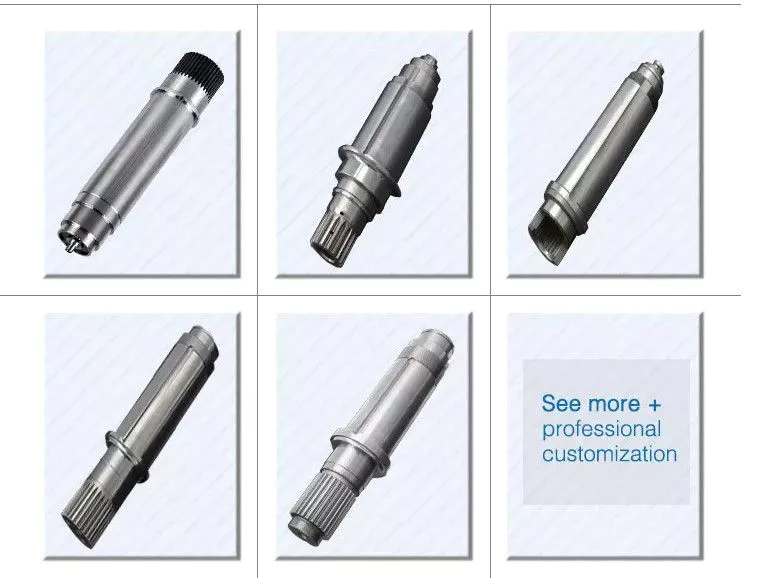
Aerospace applications
The splines used for spline coupling in aircraft are highly complex. While some previous researches have addressed the design of splines, few publications have tackled the problem of misaligned spline coupling. Nevertheless, the accurate results we obtained were obtained using dedicated simulation tools, which are not commercially available. Nevertheless, such tools can provide a useful reference for our approach. It would be beneficial if designers could use simple tools for evaluating contact pressure peaks. Our analytical approach makes it possible to find answers to such questions.
The design of a spline coupling for aerospace applications must be accurate to minimize weight and prevent failure mechanisms. In addition to weight reduction, it is necessary to minimize fretting fatigue. The pressure distribution on the spline coupling teeth is a significant factor in determining its fretting fatigue. Therefore, we use analytical and experimental methods to examine the contact pressure distribution in the axial direction of spline couplings.
The teeth of a spline coupling can be categorized by the type of engagement they provide. This study investigates the position of resultant contact forces in the teeth of a spline coupling when applied to pitch diameter. Using FEM models, numerical results are generated for nominal and parallel offset misalignments. The axial tooth profile determines the behavior of the coupling component and its ability to resist wear. Angular misalignment is also a concern, causing misalignment.
In order to assess wear damage of a spline coupling, we must take into consideration the impact of fretting on the components. This wear is caused by relative motion between the teeth that engage them. The misalignment may be caused by vibrations, cyclical tooth deflection, or angular misalignment. The result of this analysis may help designers improve their spline coupling designs and develop improved performance.
CZPT polyimide, an abrasion-resistant polymer, is a popular choice for high-temperature spline couplings. This material reduces friction and wear, provides a low friction surface, and has a low wear rate. Furthermore, it offers up to 50 times the life of metal on metal spline connections. For these reasons, it is important to choose the right material for your spline coupling.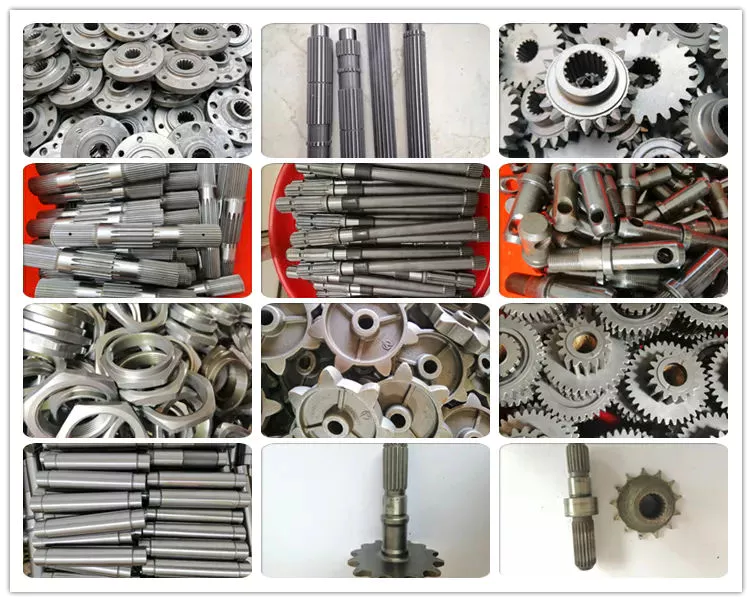
High-performance vehicles
A spline coupler is a device used to connect splined shafts. A typical spline coupler resembles a short pipe with splines on either end. There are 2 basic types of spline coupling: single and dual spline. One type attaches to a drive shaft, while the other attaches to the gearbox. While spline couplings are typically used in racing, they’re also used for performance problems.
The key challenge in spline couplings is to determine the optimal dimension of spline joints. This is difficult because no commercial codes allow the simulation of misaligned joints, which can destroy components. This article presents analytical approaches to estimating contact pressures in spline connections. The results are comparable with numerical approaches but require special codes to accurately model the coupling operation. This research highlights several important issues and aims to make the application of spline couplings in high-performance vehicles easier.
The stiffness of spline assemblies can be calculated using tooth-like structures. Such splines can be incorporated into the spline joint to produce global stiffness for torsional vibration analysis. Bearing reactions are calculated for a certain level of misalignment. This information can be used to design bearing dimensions and correct misalignment. There are 3 types of spline couplings.
Major diameter fit splines are made with tightly controlled outside diameters. This close fit provides concentricity transfer from the male to the female spline. The teeth of the male spline usually have chamfered tips and clearance with fillet radii. These splines are often manufactured from billet steel or aluminum. These materials are renowned for their strength and uniform grain created by the forging process. ANSI and DIN design manuals define classes of fit.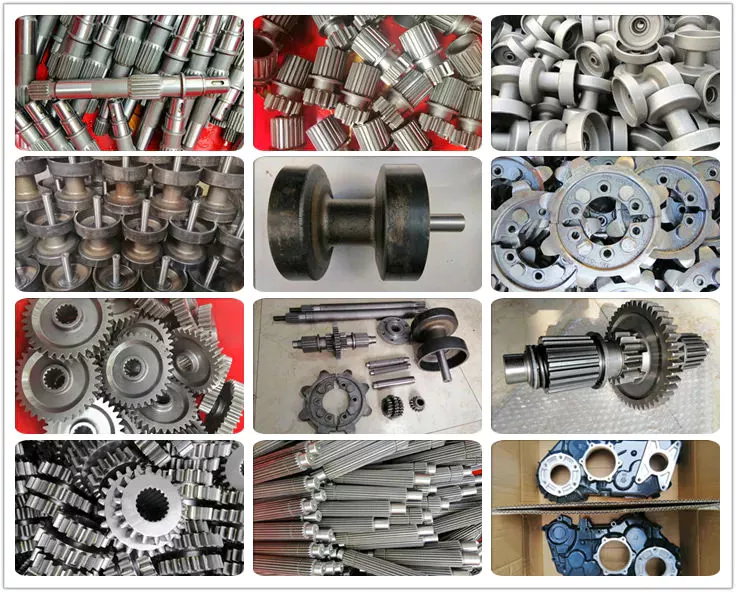
Disc brake mounting interfaces
A spline coupling for disc brake mounting interfaces is a type of hub-to-brake-disc mount. It is a highly durable coupling mechanism that reduces heat transfer from the disc to the axle hub. The mounting arrangement also isolates the axle hub from direct contact with the disc. It is also designed to minimize the amount of vehicle downtime and maintenance required to maintain proper alignment.
Disc brakes typically have substantial metal-to-metal contact with axle hub splines. The discs are held in place on the hub by intermediate inserts. This metal-to-metal contact also aids in the transfer of brake heat from the brake disc to the axle hub. Spline coupling for disc brake mounting interfaces comprises a mounting ring that is either a threaded or non-threaded spline.
During drag brake experiments, perforated friction blocks filled with various additive materials are introduced. The materials included include Cu-based powder metallurgy material, a composite material, and a Mn-Cu damping alloy. The filling material affects the braking interface’s wear behavior and friction-induced vibration characteristics. Different filling materials produce different types of wear debris and have different wear evolutions. They also differ in their surface morphology.
Disc brake couplings are usually made of 2 different types. The plain and HD versions are interchangeable. The plain version is the simplest to install, while the HD version has multiple components. The two-piece couplings are often installed at the same time, but with different mounting interfaces. You should make sure to purchase the appropriate coupling for your vehicle. These interfaces are a vital component of your vehicle and must be installed correctly for proper operation.
Disc brakes use disc-to-hub elements that help locate the forces and displace them to the rim. These elements are typically made of stainless steel, which increases the cost of manufacturing the disc brake mounting interface. Despite their benefits, however, the high braking force loads they endure are hard on the materials. Moreover, excessive heat transferred to the intermediate elements can adversely affect the fatigue life and long-term strength of the brake system.


China manufacturer Hydraulic Ladder Axles with Concave Beam Lowbed Semi Trailer near me shop
Product Description
With concave beam hydraulic ladder axles lowbed semi trailer
Product Description
| Product Information | |||||
| Product | Low bed semi trailer | ||||
| Brand Name | CHHGC Brand | ||||
| Model Number | ZJV9191TD | ||||
| OEM | available | ||||
| Place of Origin | ZheJiang province, China | ||||
| Color | Any color will be available | ||||
| Manufacturer | ZheJiang CZPT Import and export Co.,Ltd. | ||||
| Product Specifications | |||||
| Parameter | |||||
| Outside Dimensions (L*W*H) | L:12000-20000 W:2400-4000 H:900-1500 | ||||
| Rated Load | 30ton-500ton | ||||
| Tare Weight | More than 9000kgs | ||||
| Wheel Base | 8480+1310 (mm) | ||||
| Running Gear | |||||
| Tires | specification | 12R22.5 ,11.00R20 or depends on customer | |||
| No. of tires | 8,12,16 or more than 20 | ||||
| Spare tire carriers | 2 or 1 including a riser. | ||||
| Axles |
Brand : | FUWA (BPW German optional) | |||
| No. of axles: | 2,3 4 or more than 5 | ||||
| Axle-load | 13000kgs | ||||
| Wheel rim | 8units of 7.50-20 rim or 8.00 | ||||
| Suspension | Rigid suspension and air suspension | ||||
| Pieces of leaf-spring | 10/10/10 | ||||
| Brakes | brand | TKL brand | |||
| Brake chamber | 4 double chamber | ||||
| System | Dual line braking system /ABS | ||||
| Under Frame | |||||
| Departure Angle | 14 | ||||
| Front/Rear Overhang | 1670mm | ||||
| Main Beam | material | I beam ,Q345B , automatic submerged arc welded | |||
| specification | Height is 500mm,upper plate is 20mm,lower plate is 20mm,middle is 12mm |
||||
| Cross Beam material | Q235B | ||||
| Side beam | 16# channel steel | ||||
| Plate form | Steel Sheet 5mm thickness or CZPT plate(Also can choose other thickness ,such as 2mm,2.5mm,3mm,4mm,5mm,6mm) |
||||
| King Pin | 50# or 90# | ||||
| Landing gear | Single side operation or double side operation, Static capacity 28Ton | ||||
| Accessory | One tooling box with a set of standard trailer tool | ||||
| Electrical | |||||
| Voltage | 24V | ||||
| Receptacle | 7 ways (7 wire harness) | ||||
| Lights | Front corner marker lamp :red ;reflector lamp :white | ||||
| Side marker :orange | |||||
| Rear lamp :red; rear reflector :white; turn single lamp :orange | |||||
| Other | |||||
| Usage | The height of the cargo’s carrying platform is 800-1290mm, is suitable For the transportation of the large and non-dismantled objects. |
||||
| Other Specifications | The max height of the rear guard from ground is 420mm | ||||
| Other Descriptions | The whole body adopts steel with good quality, and be manufactured by advanced skills and strict producing managerial processes. The frame is wearing structure, webs made from manganese plates from 400mm to 550mm high welded the upper and lower flange plates together, and the beam runs through the longitudinal beam makes the 2 parts a very strong unit by automatic submerged arc welding. Frame using peen-forming processing. |
||||
| Painting ,marking and side guard can according to the customer’s requirement. | |||||
Certificate
Workshop
Business Partners
FAQ:
Q1. How to ship the vehicles?
A: By container, bulk ship, RORO.
Q2. Do you have RHD(right hand driving) vehicles?
A: Yes, noramlly we supply all LHD vehicles, and we have some RHD model vehicles.
Q3. What is your payment term?
A: We usually accept T/T or L/C depends on the quantity.
T/T, deposit in advance, and balance paid before delivery from factory.
Q4. Which model vehicles do you supply?
A: We supply all kinds of vehicles such as SUV, MPV, Pickup,van,truck, bus etc,.
Q5. What is your terms of delivery?
A: FOB, CIF.
Q6. How about your delivery time?
A: Generally, it will take 30 to 60 days after receiving your advance payment. The specific delivery time depends on the items and the quantity of your order.
Q7. Do you test all your goods before delivery?
A: Yes, we have 100% test before delivery
Q8: What can you guarantee to your business partner?
A: Best price with good quality. We guarantee quality and after sale service to satisfy our business partners.
Worm Shafts and Gearboxes
If you have a gearbox, you may be wondering what the best Worm Shaft is for your application. There are several things to consider, including the Concave shape, Number of threads, and Lubrication. This article will explain each factor and help you choose the right Worm Shaft for your gearbox. There are many options available on the market, so don’t hesitate to shop around. If you are new to the world of gearboxes, read on to learn more about this popular type of gearbox.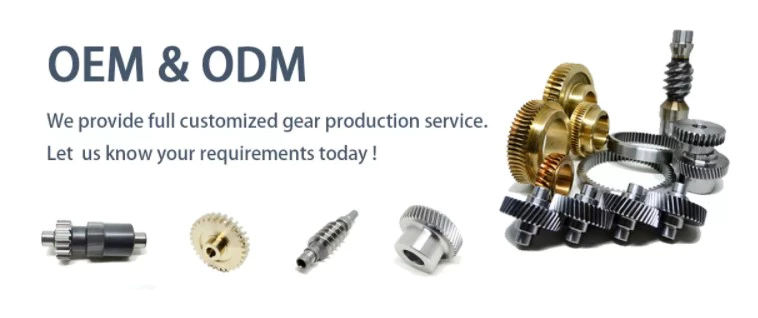
Concave shape
The geometry of a worm gear varies considerably depending on its manufacturer and its intended use. Early worms had a basic profile that resembled a screw thread and could be chased on a lathe. Later, tools with a straight sided g-angle were developed to produce threads that were parallel to the worm’s axis. Grinding was also developed to improve the finish of worm threads and minimize distortions that occur with hardening.
To select a worm with the proper geometry, the diameter of the worm gear must be in the same unit as the worm’s shaft. Once the basic profile of the worm gear is determined, the worm gear teeth can be specified. The calculation also involves an angle for the worm shaft to prevent it from overheating. The angle of the worm shaft should be as close to the vertical axis as possible.
Double-enveloping worm gears, on the other hand, do not have a throat around the worm. They are helical gears with a straight worm shaft. Since the teeth of the worm are in contact with each other, they produce significant friction. Unlike double-enveloping worm gears, non-throated worm gears are more compact and can handle smaller loads. They are also easy to manufacture.
The worm gears of different manufacturers offer many advantages. For instance, worm gears are 1 of the most efficient ways to increase torque, while lower-quality materials like bronze are difficult to lubricate. Worm gears also have a low failure rate because they allow for considerable leeway in the design process. Despite the differences between the 2 standards, the overall performance of a worm gear system is the same.
The cone-shaped worm is another type. This is a technological scheme that combines a straight worm shaft with a concave arc. The concave arc is also a useful utility model. Worms with this shape have more than 3 contacts at the same time, which means they can reduce a large diameter without excessive wear. It is also a relatively low-cost model.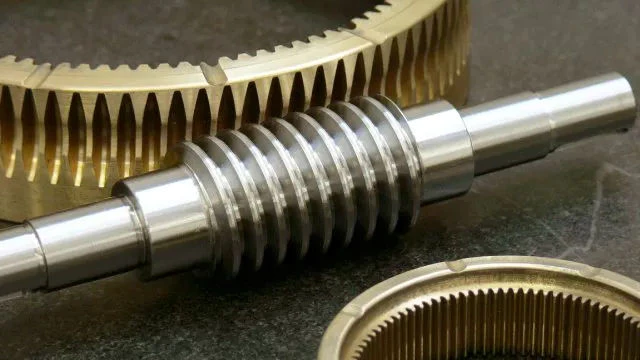
Thread pattern
A good worm gear requires a perfect thread pattern. There are a few key parameters that determine how good a thread pattern is. Firstly, the threading pattern must be ACME-threaded. If this is not possible, the thread must be made with straight sides. Then, the linear pitch of the “worm” must be the same as the circular pitch of the corresponding worm wheel. In simple terms, this means the pitch of the “worm” is the same as the circular pitch of the worm wheel. A quick-change gearbox is usually used with this type of worm gear. Alternatively, lead-screw change gears are used instead of a quick-change gear box. The pitch of a worm gear equals the helix angle of a screw.
A worm gear’s axial pitch must match the circular pitch of a gear with a higher axial pitch. The circular pitch is the distance between the points of teeth on the worm, while the axial pitch is the distance between the worm’s teeth. Another factor is the worm’s lead angle. The angle between the pitch cylinder and worm shaft is called its lead angle, and the higher the lead angle, the greater the efficiency of a gear.
Worm gear tooth geometry varies depending on the manufacturer and intended use. In early worms, threading resembled the thread on a screw, and was easily chased using a lathe. Later, grinding improved worm thread finishes and minimized distortions from hardening. As a result, today, most worm gears have a thread pattern corresponding to their size. When selecting a worm gear, make sure to check for the number of threads before purchasing it.
A worm gear’s threading is crucial in its operation. Worm teeth are typically cylindrical, and are arranged in a pattern similar to screw or nut threads. Worm teeth are often formed on an axis of perpendicular compared to their parallel counterparts. Because of this, they have greater torque than their spur gear counterparts. Moreover, the gearing has a low output speed and high torque.
Number of threads
Different types of worm gears use different numbers of threads on their planetary gears. A single threaded worm gear should not be used with a double-threaded worm. A single-threaded worm gear should be used with a single-threaded worm. Single-threaded worms are more effective for speed reduction than double-threaded ones.
The number of threads on a worm’s shaft is a ratio that compares the pitch diameter and number of teeth. In general, worms have 1,2,4 threads, but some have three, five, or six. Counting thread starts can help you determine the number of threads on a worm. A single-threaded worm has fewer threads than a multiple-threaded worm, but a multi-threaded worm will have more threads than a mono-threaded planetary gear.
To measure the number of threads on a worm shaft, a small fixture with 2 ground faces is used. The worm must be removed from its housing so that the finished thread area can be inspected. After identifying the number of threads, simple measurements of the worm’s outside diameter and thread depth are taken. Once the worm has been accounted for, a cast of the tooth space is made using epoxy material. The casting is moulded between the 2 tooth flanks. The V-block fixture rests against the outside diameter of the worm.
The circular pitch of a worm and its axial pitch must match the circular pitch of a larger gear. The axial pitch of a worm is the distance between the points of the teeth on a worm’s pitch diameter. The lead of a thread is the distance a thread travels in 1 revolution. The lead angle is the tangent to the helix of a thread on a cylinder.
The worm gear’s speed transmission ratio is based on the number of threads. A worm gear with a high ratio can be easily reduced in 1 step by using a set of worm gears. However, a multi-thread worm will have more than 2 threads. The worm gear is also more efficient than single-threaded gears. And a worm gear with a high ratio will allow the motor to be used in a variety of applications.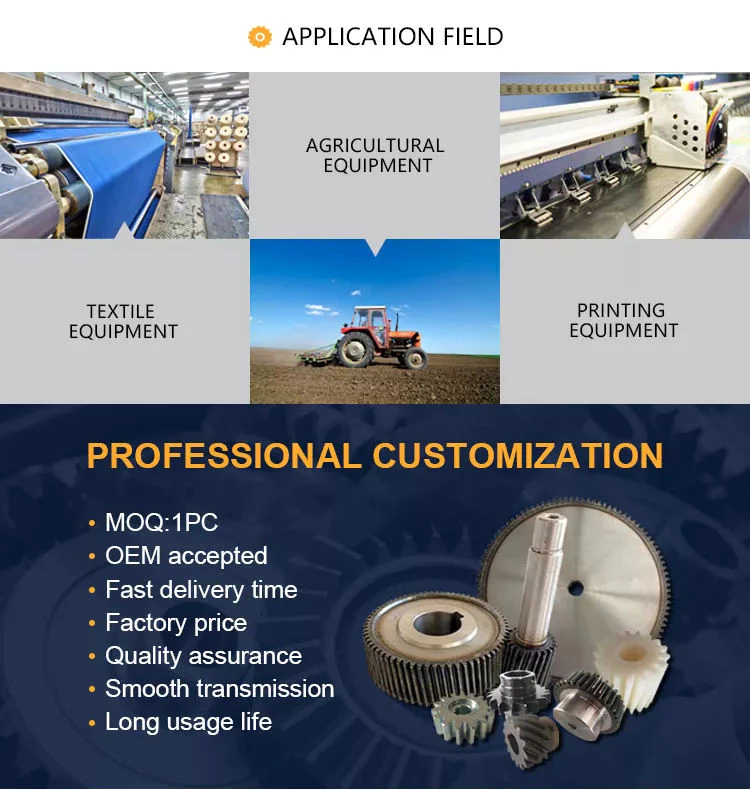
Lubrication
The lubrication of a worm gear is particularly challenging, due to its friction and high sliding contact force. Fortunately, there are several options for lubricants, such as compounded oils. Compounded oils are mineral-based lubricants formulated with 10 percent or more fatty acid, rust and oxidation inhibitors, and other additives. This combination results in improved lubricity, reduced friction, and lower sliding wear.
When choosing a lubricant for a worm shaft, make sure the product’s viscosity is right for the type of gearing used. A low viscosity will make the gearbox difficult to actuate and rotate. Worm gears also undergo a greater sliding motion than rolling motion, so grease must be able to migrate evenly throughout the gearbox. Repeated sliding motions will push the grease away from the contact zone.
Another consideration is the backlash of the gears. Worm gears have high gear ratios, sometimes 300:1. This is important for power applications, but is at the same time inefficient. Worm gears can generate heat during the sliding motion, so a high-quality lubricant is essential. This type of lubricant will reduce heat and ensure optimal performance. The following tips will help you choose the right lubricant for your worm gear.
In low-speed applications, a grease lubricant may be sufficient. In higher-speed applications, it’s best to apply a synthetic lubricant to prevent premature failure and tooth wear. In both cases, lubricant choice depends on the tangential and rotational speed. It is important to follow manufacturer’s guidelines regarding the choice of lubricant. But remember that lubricant choice is not an easy task.

